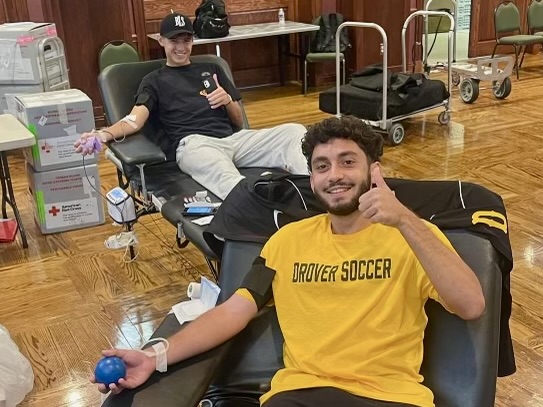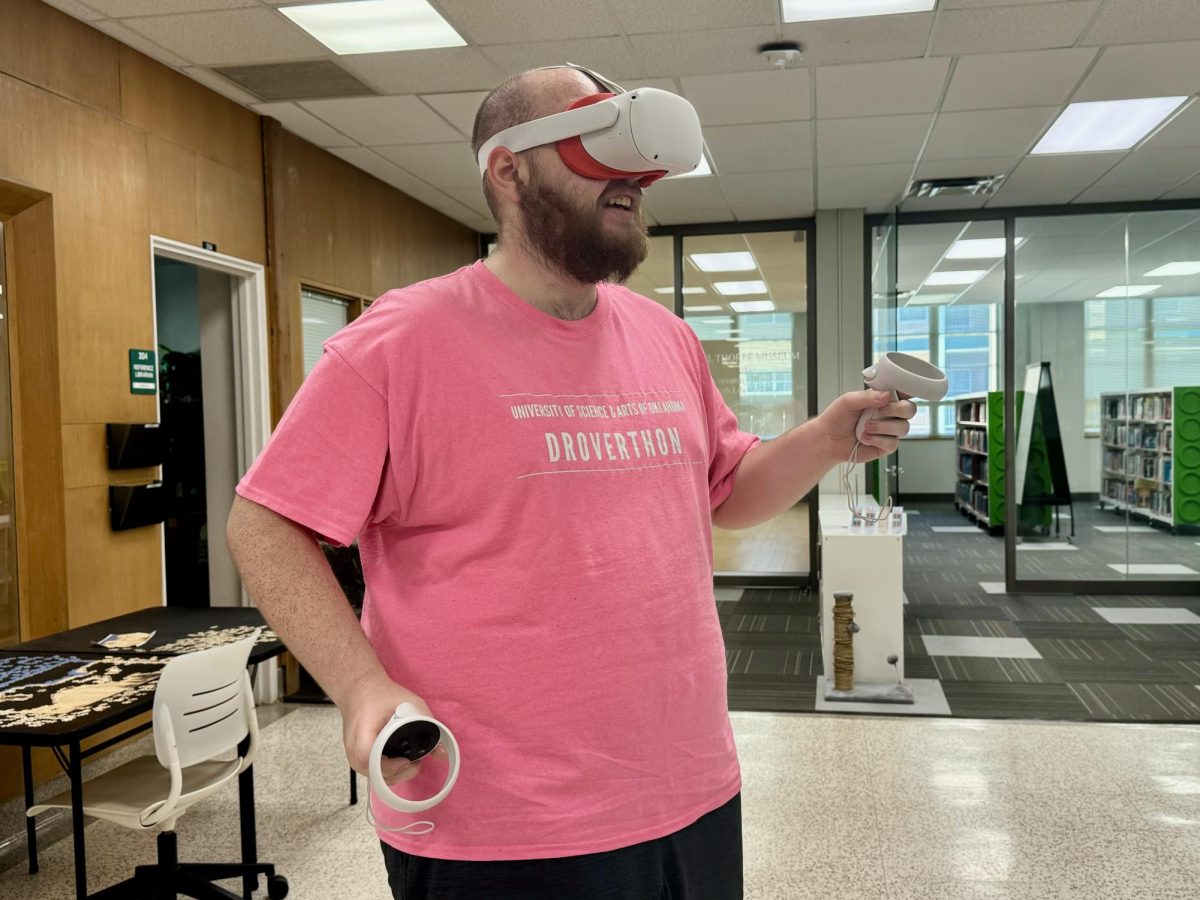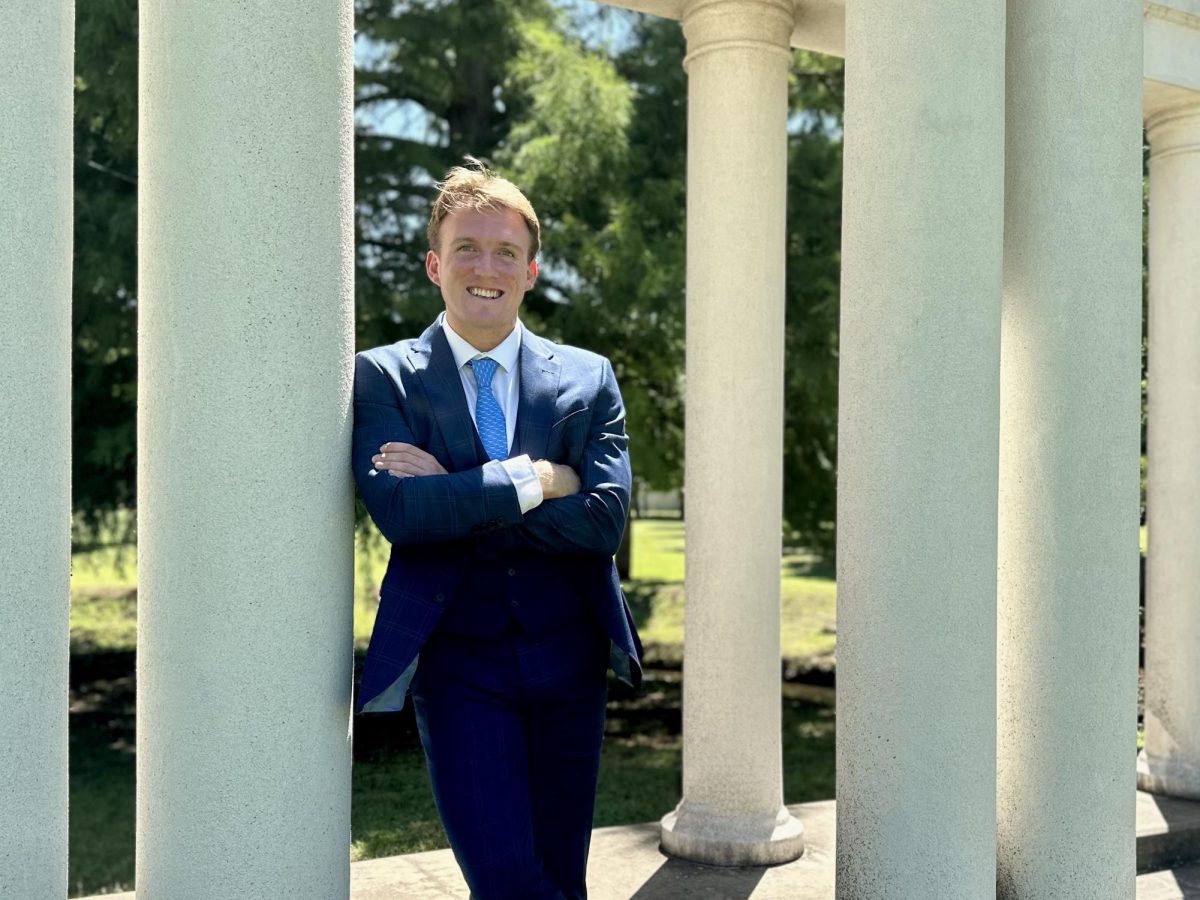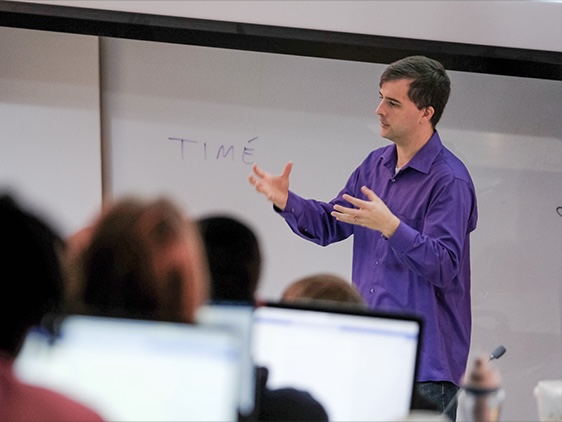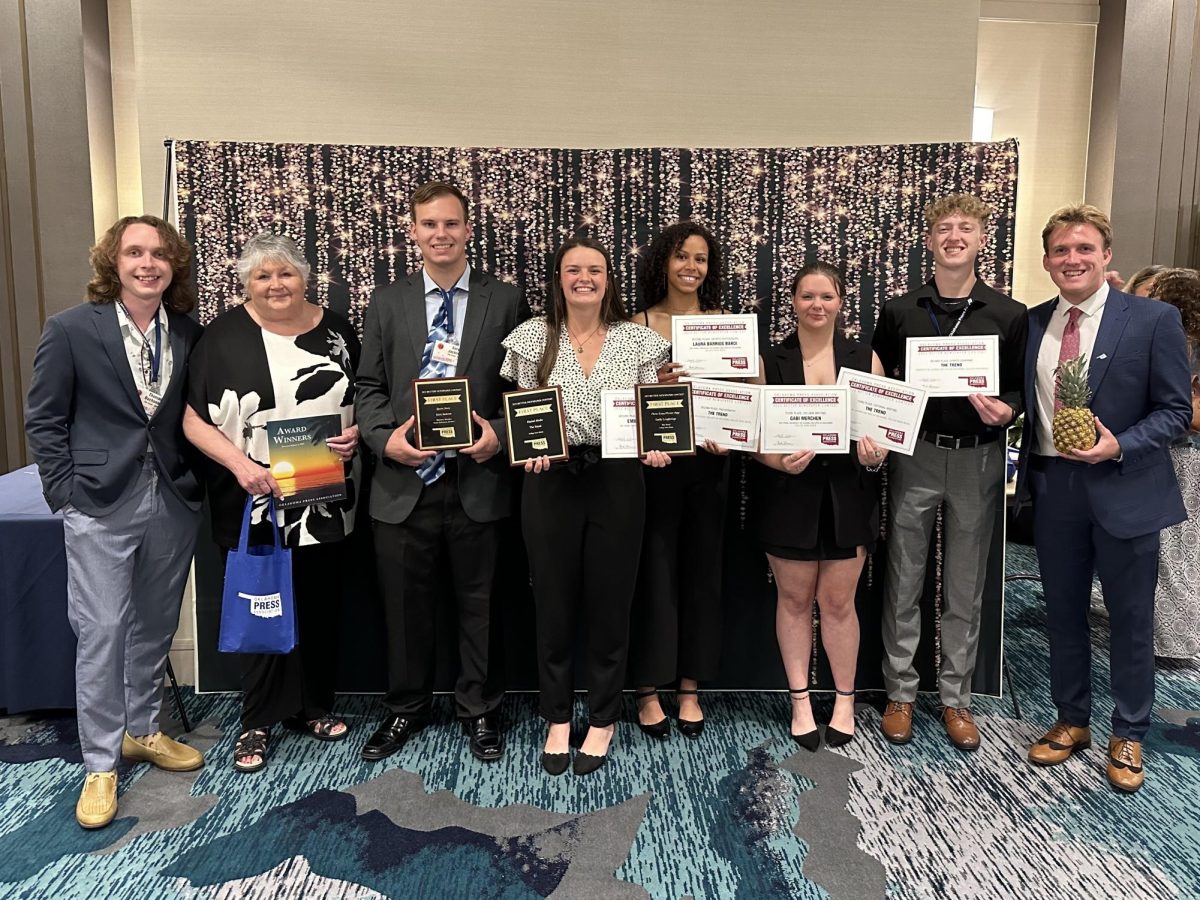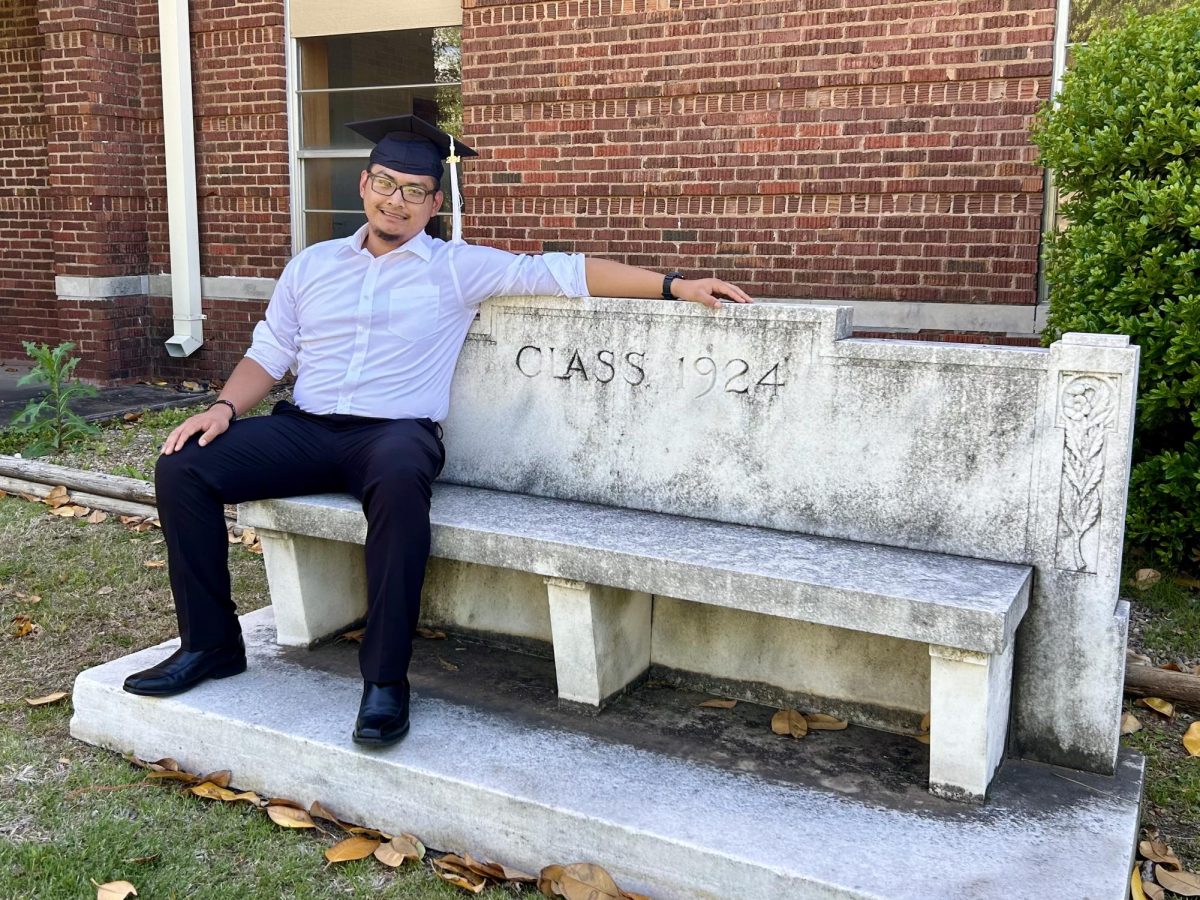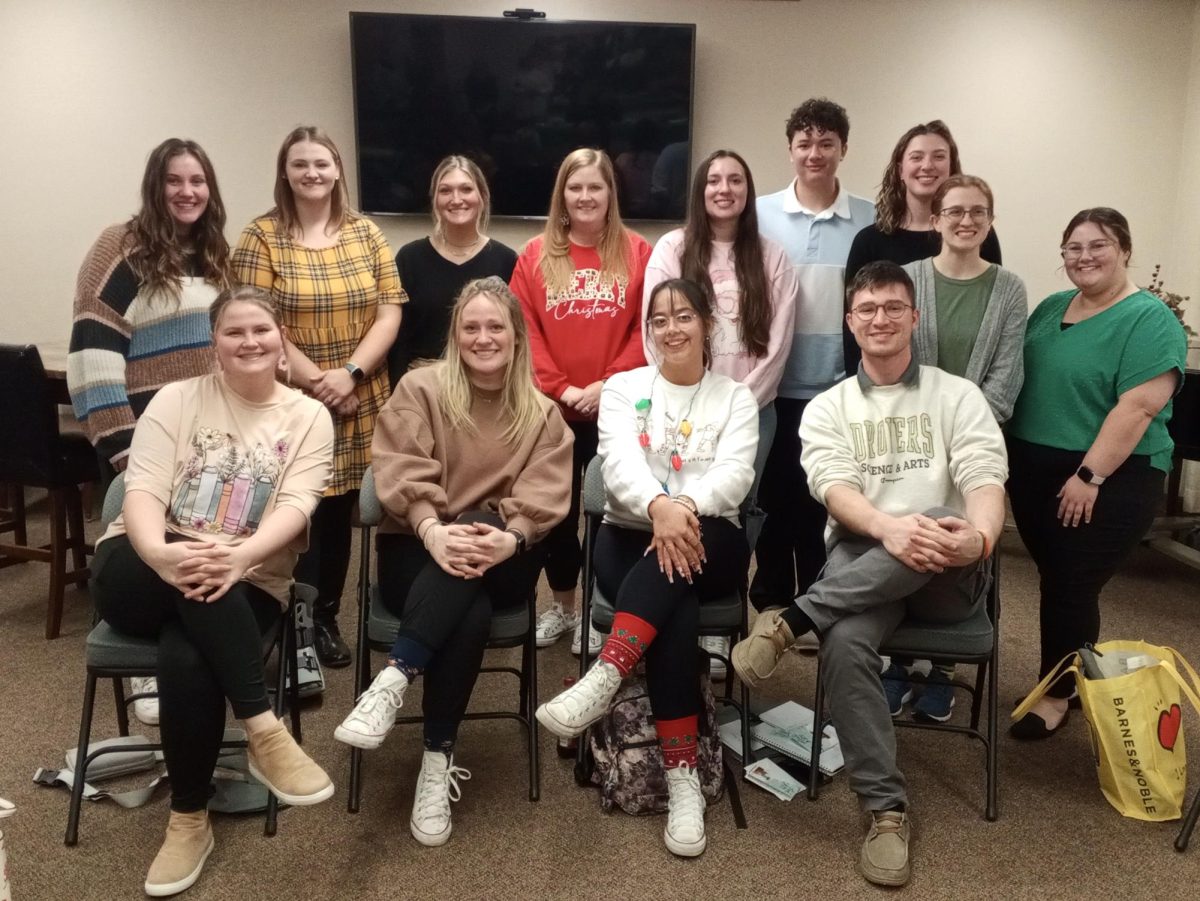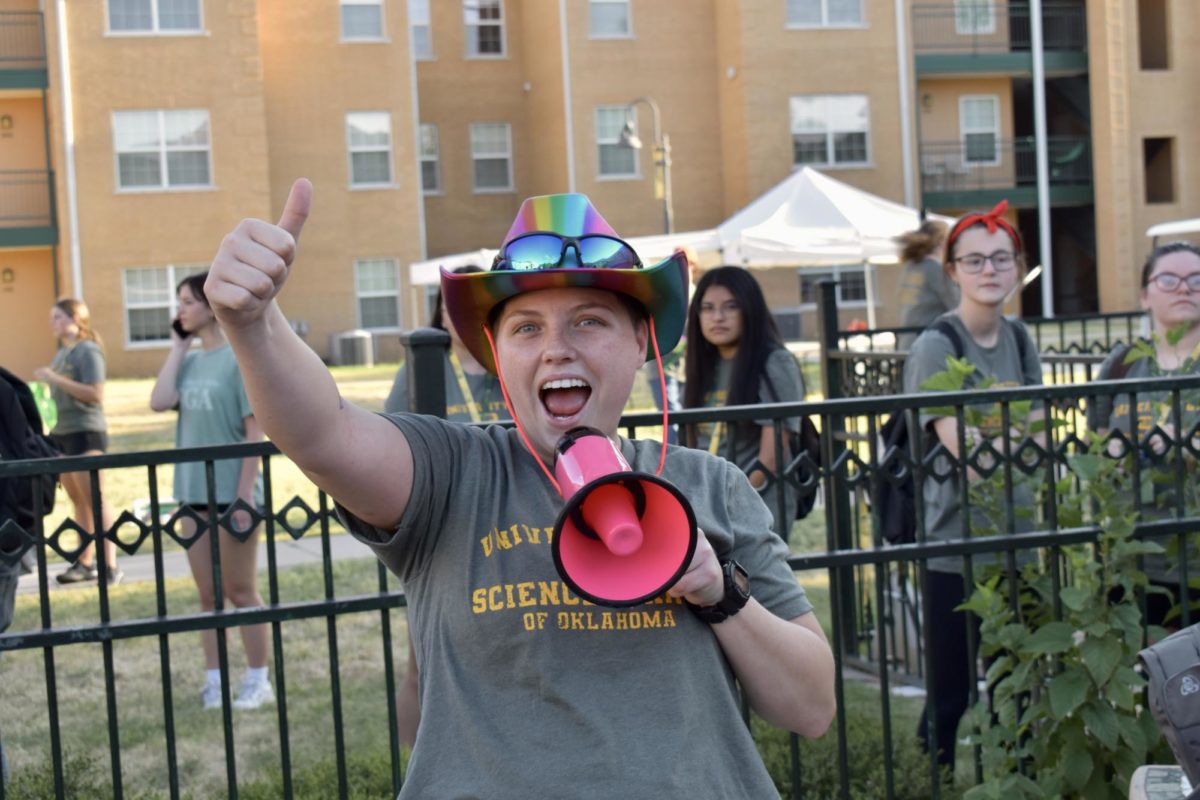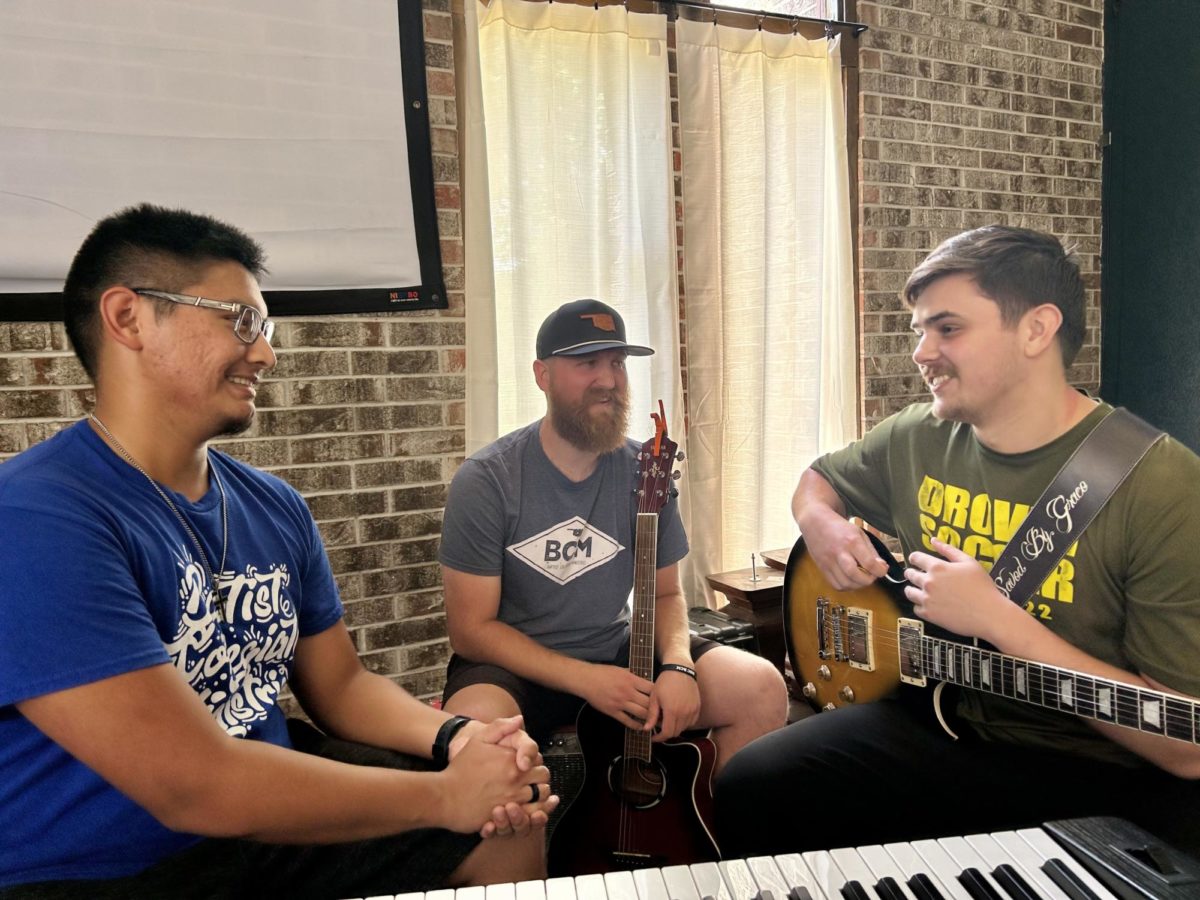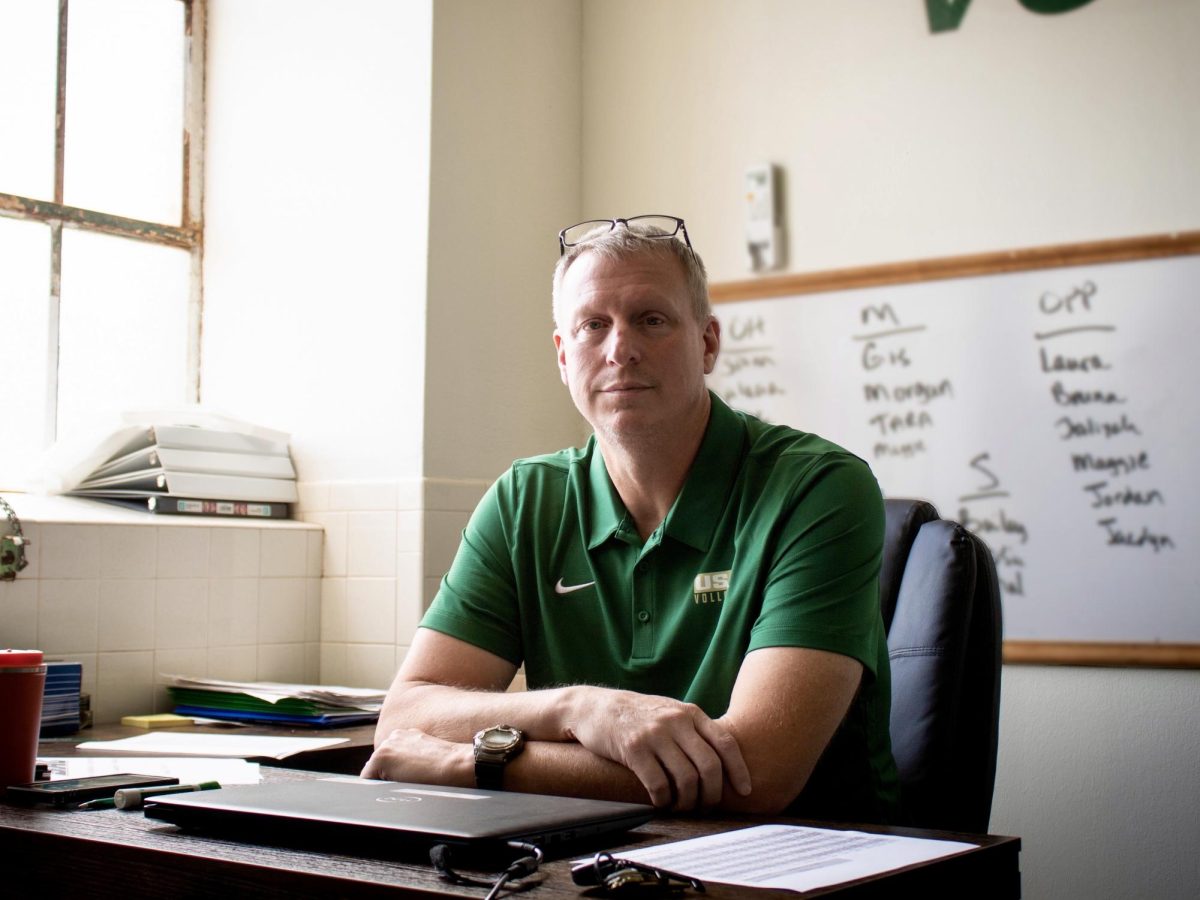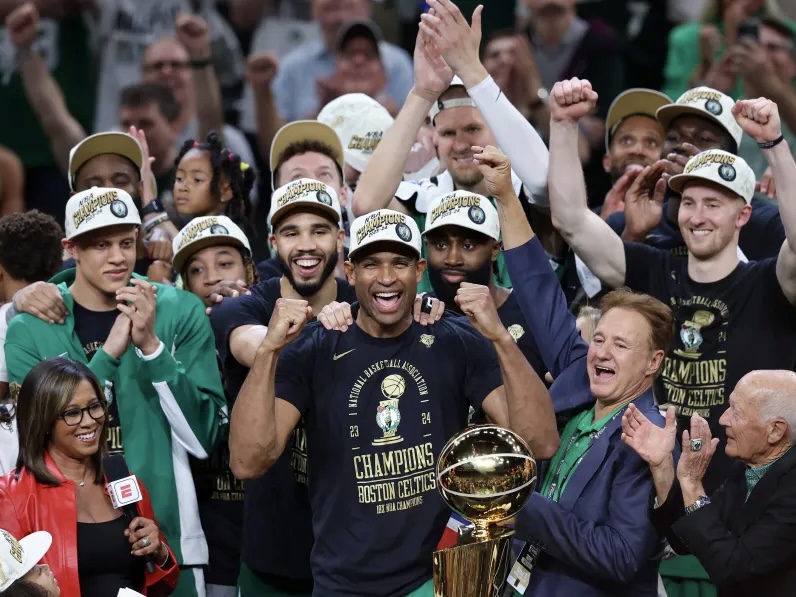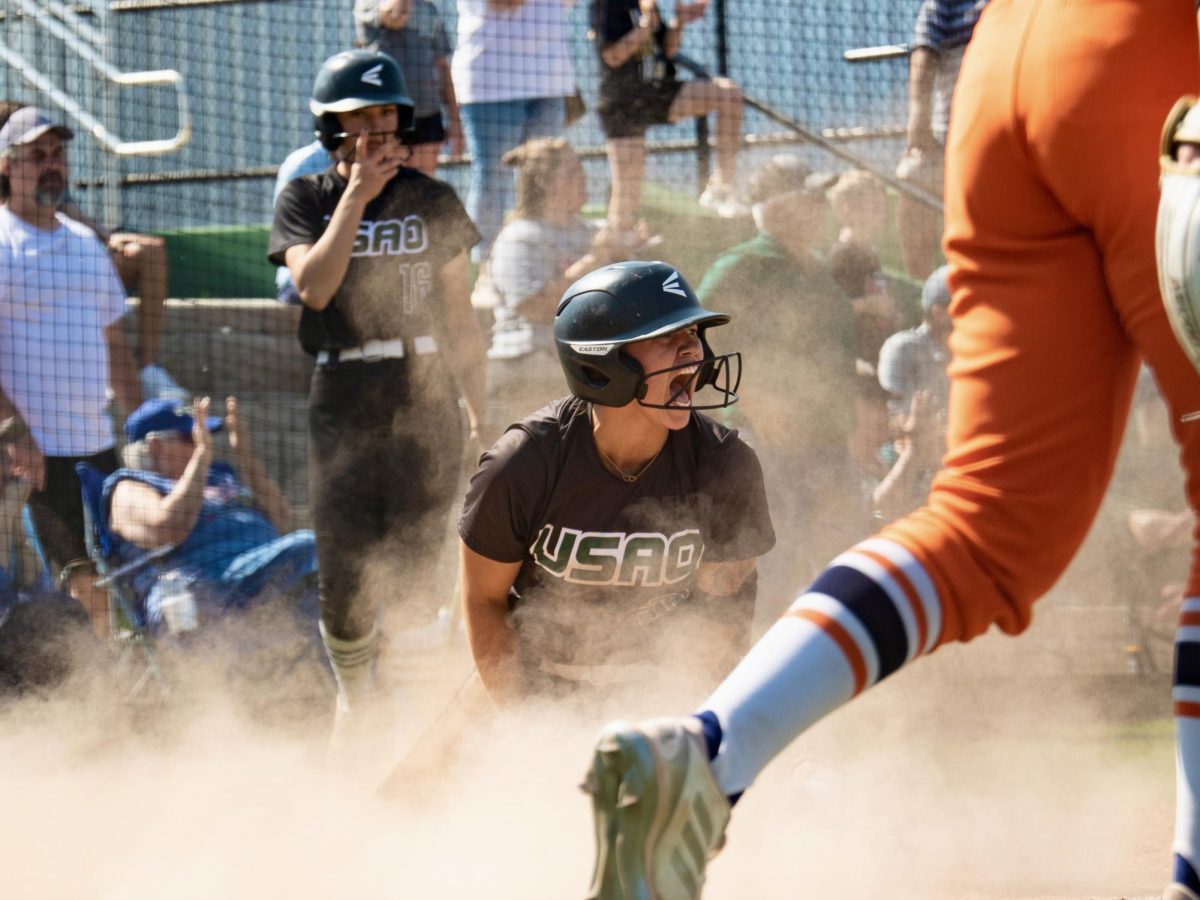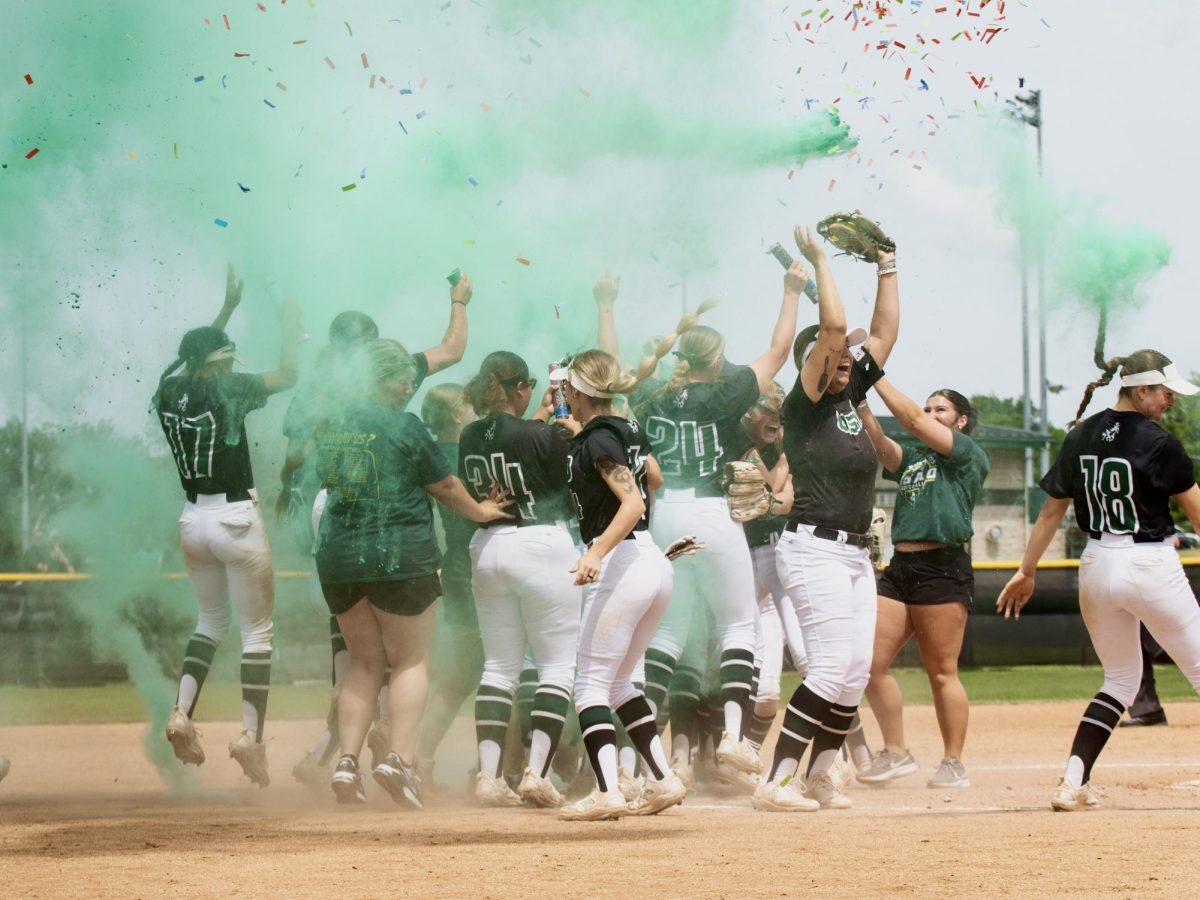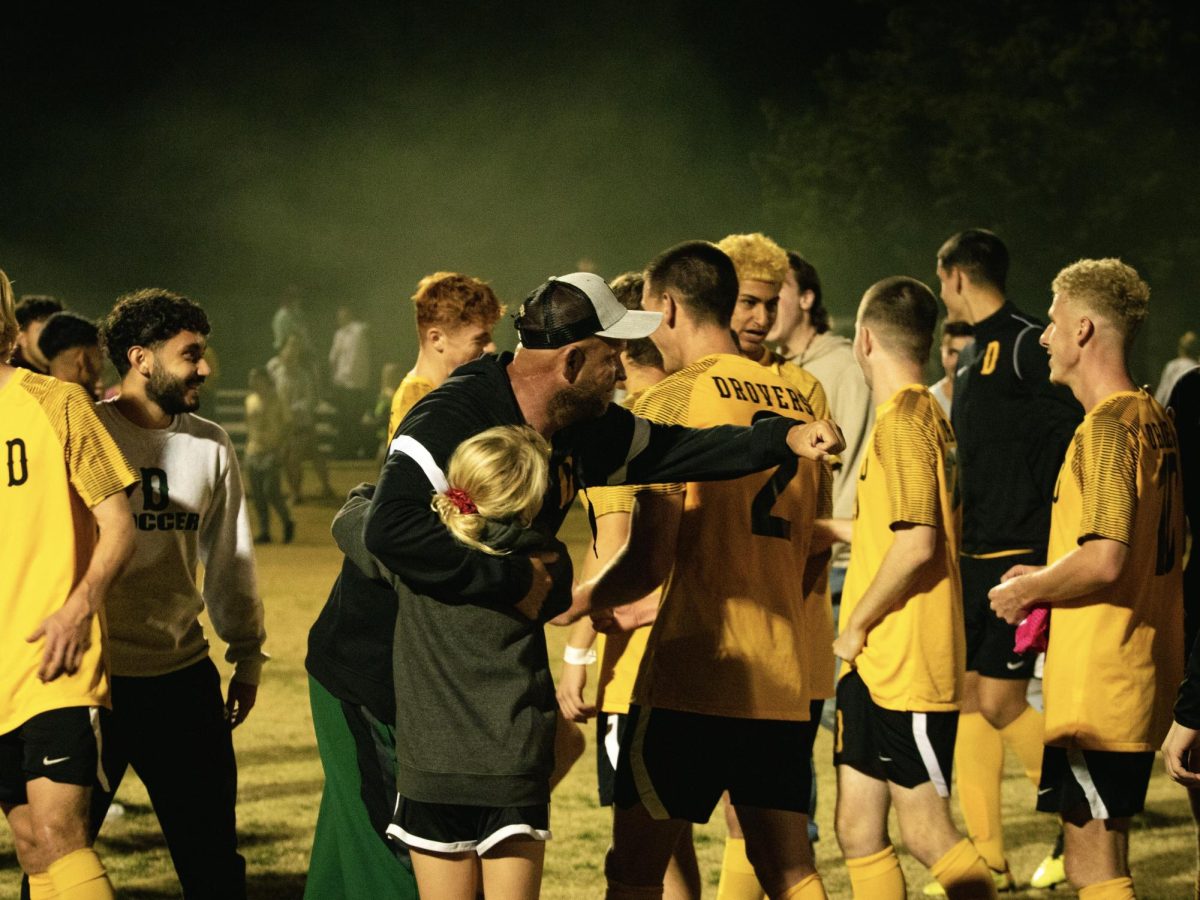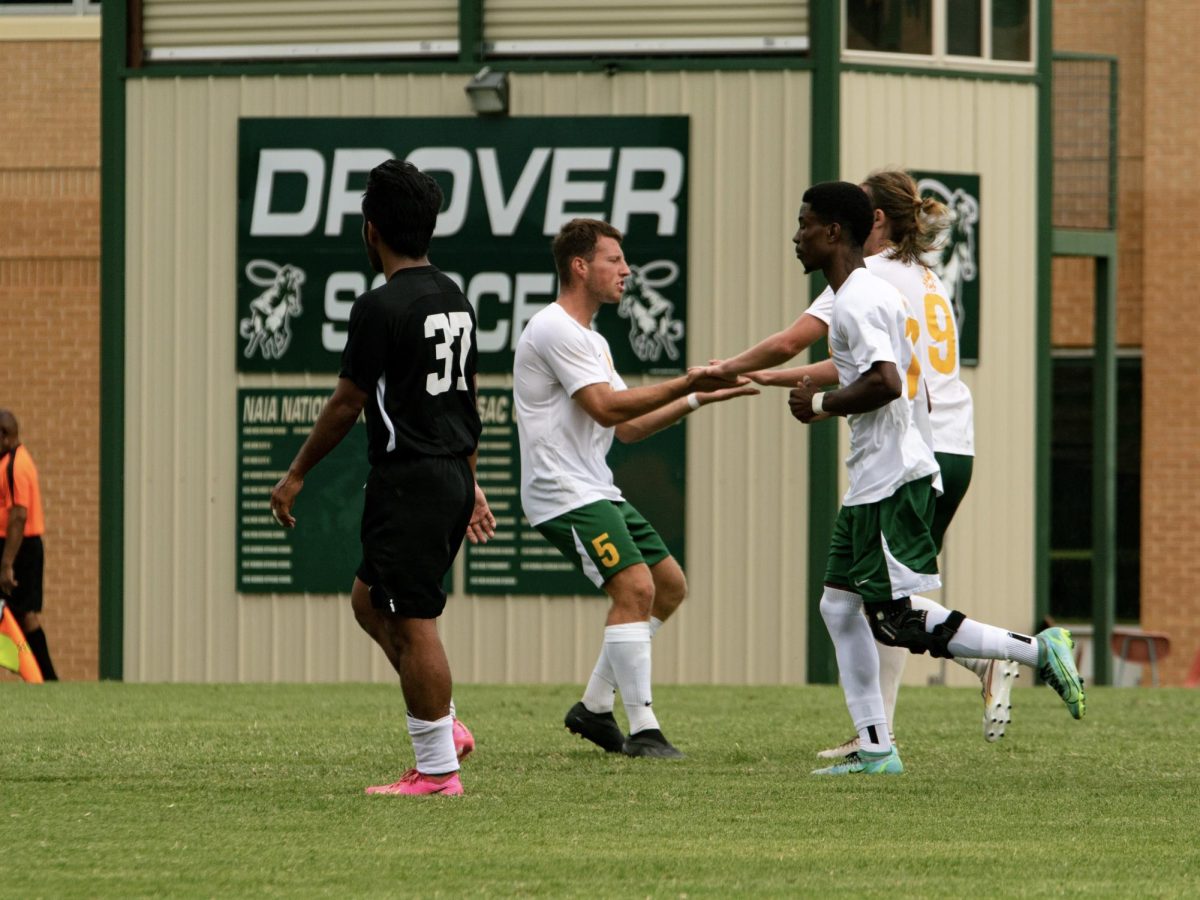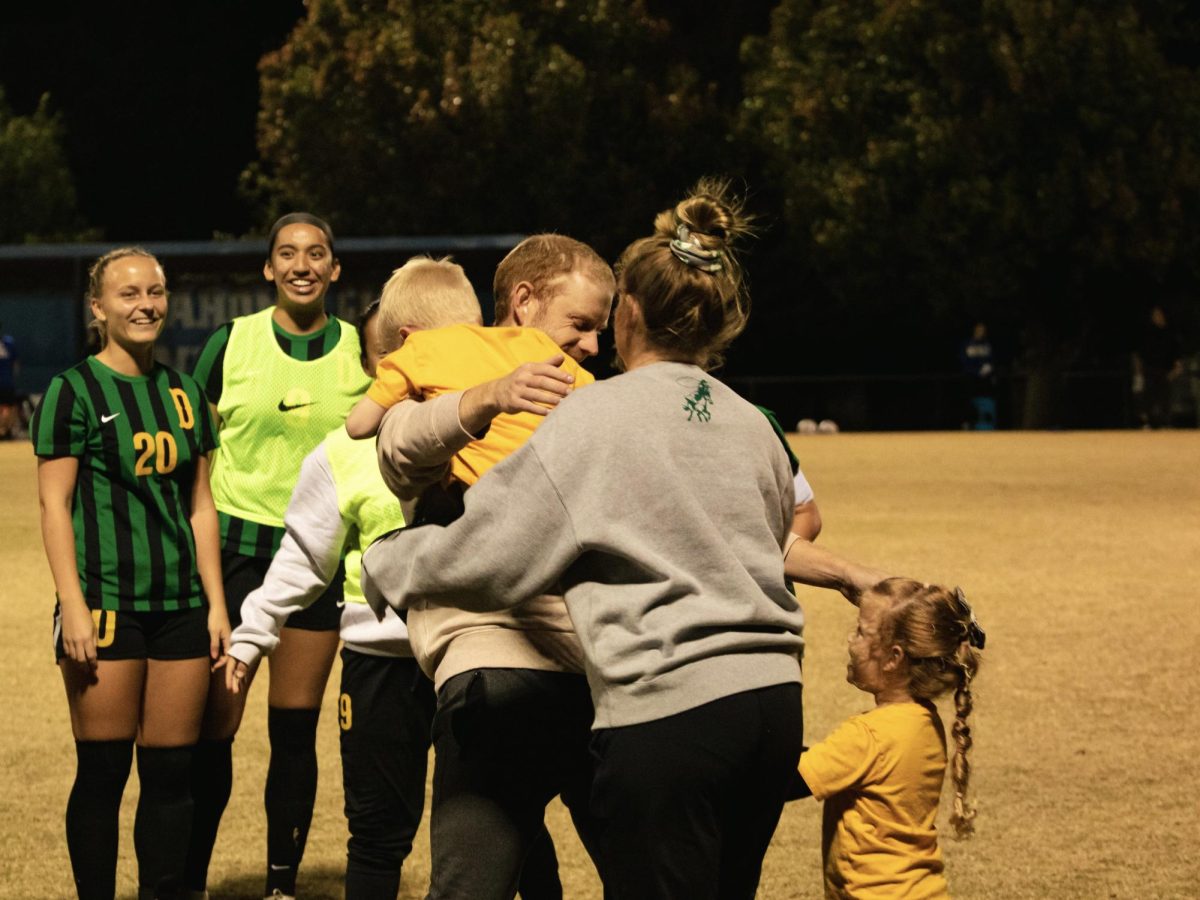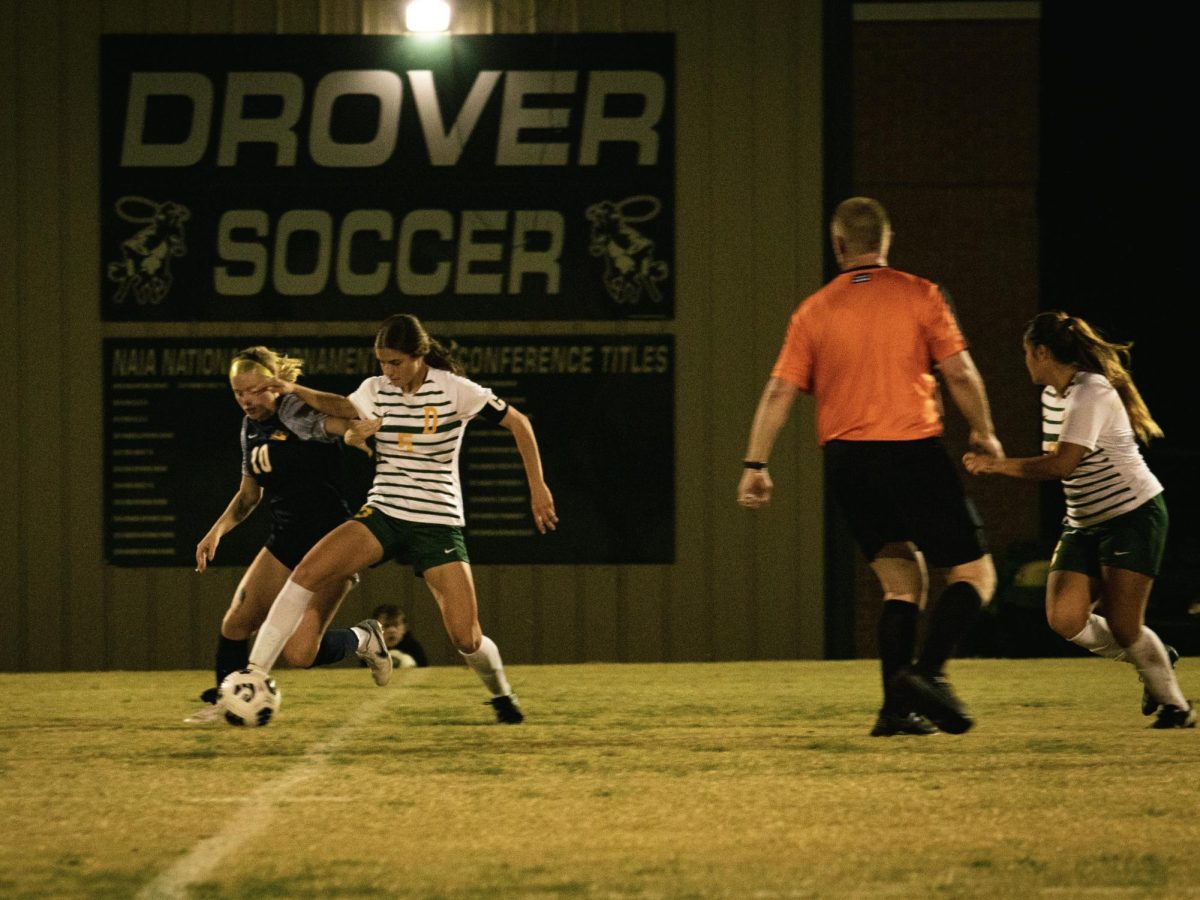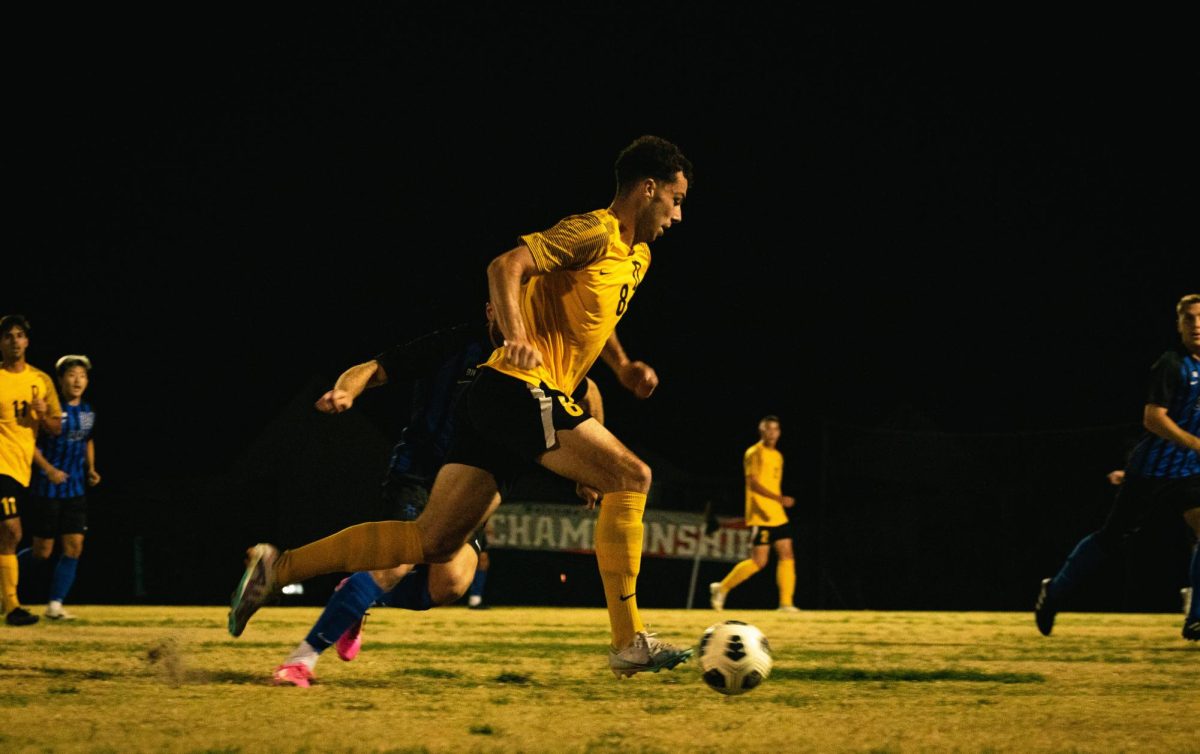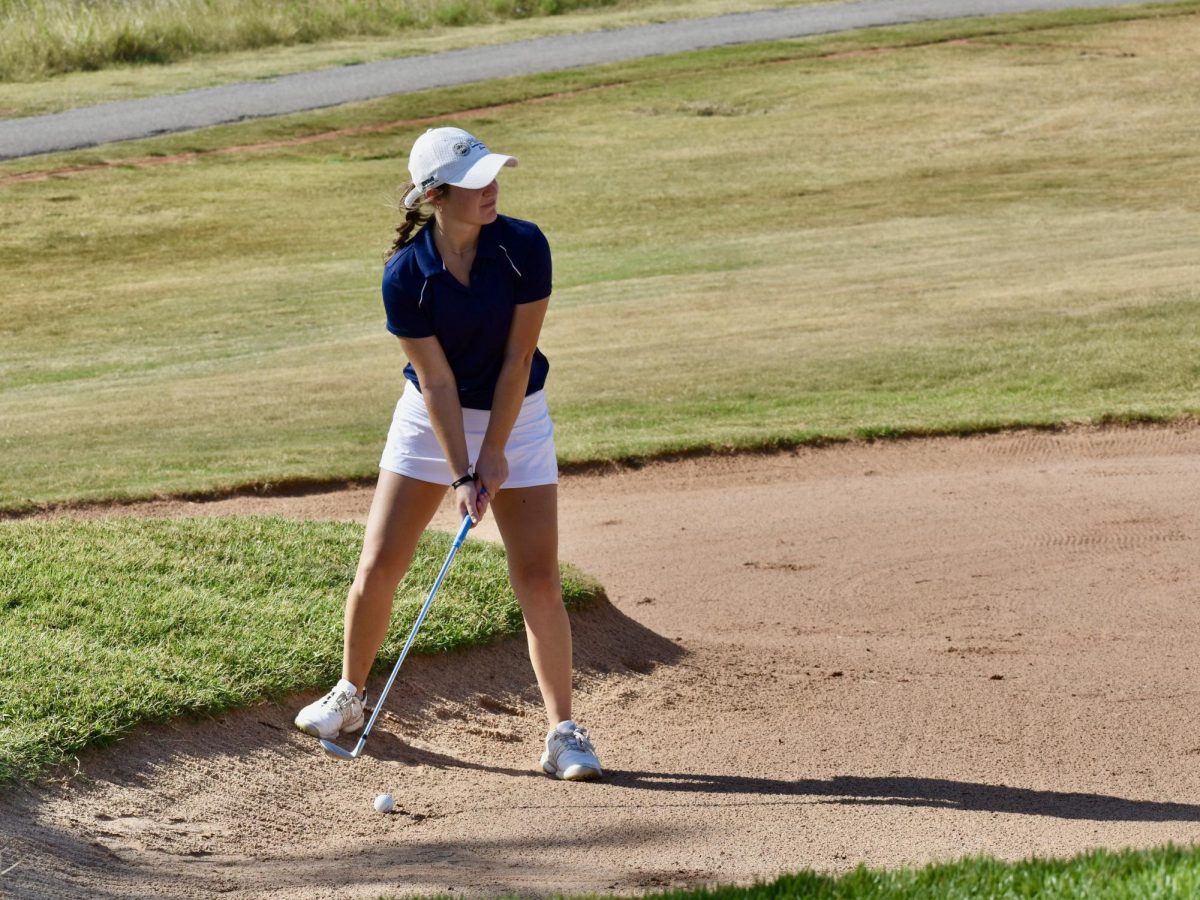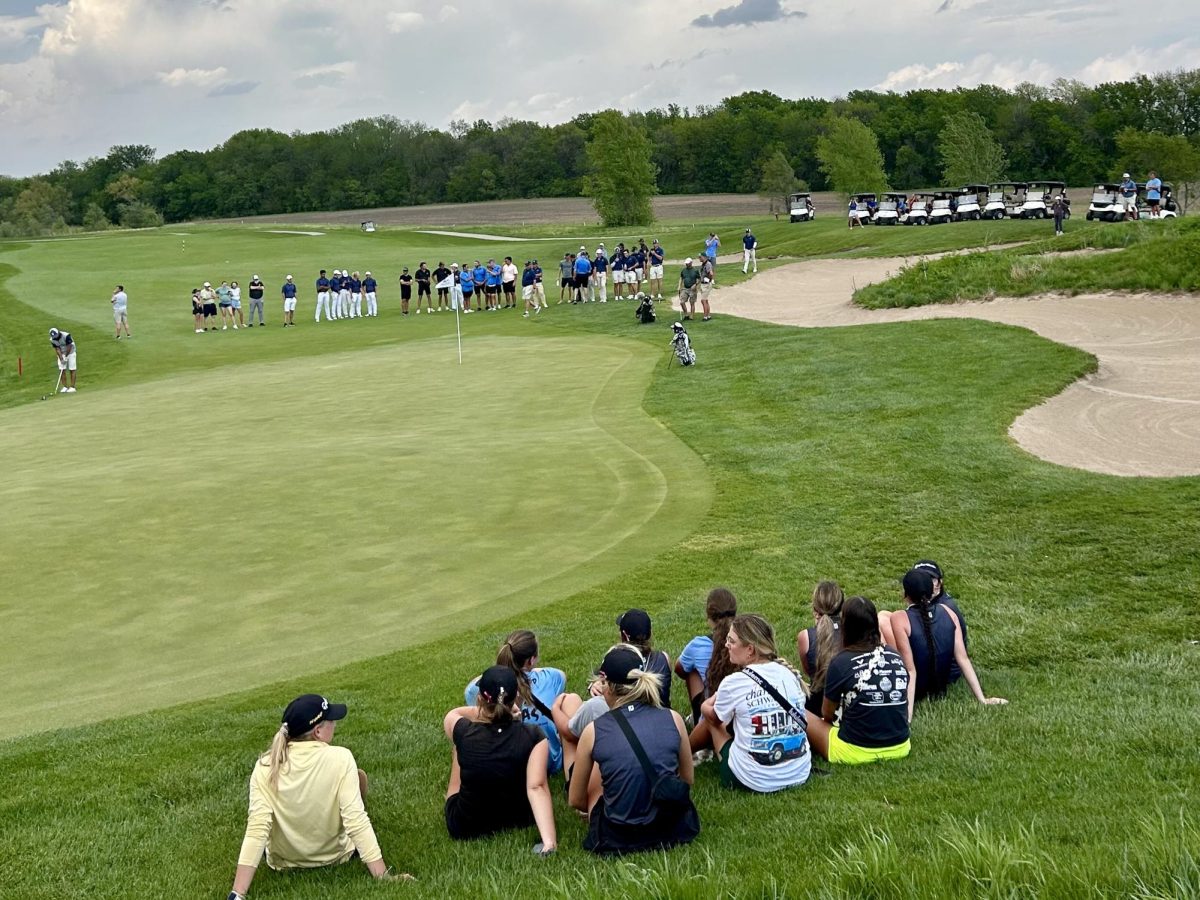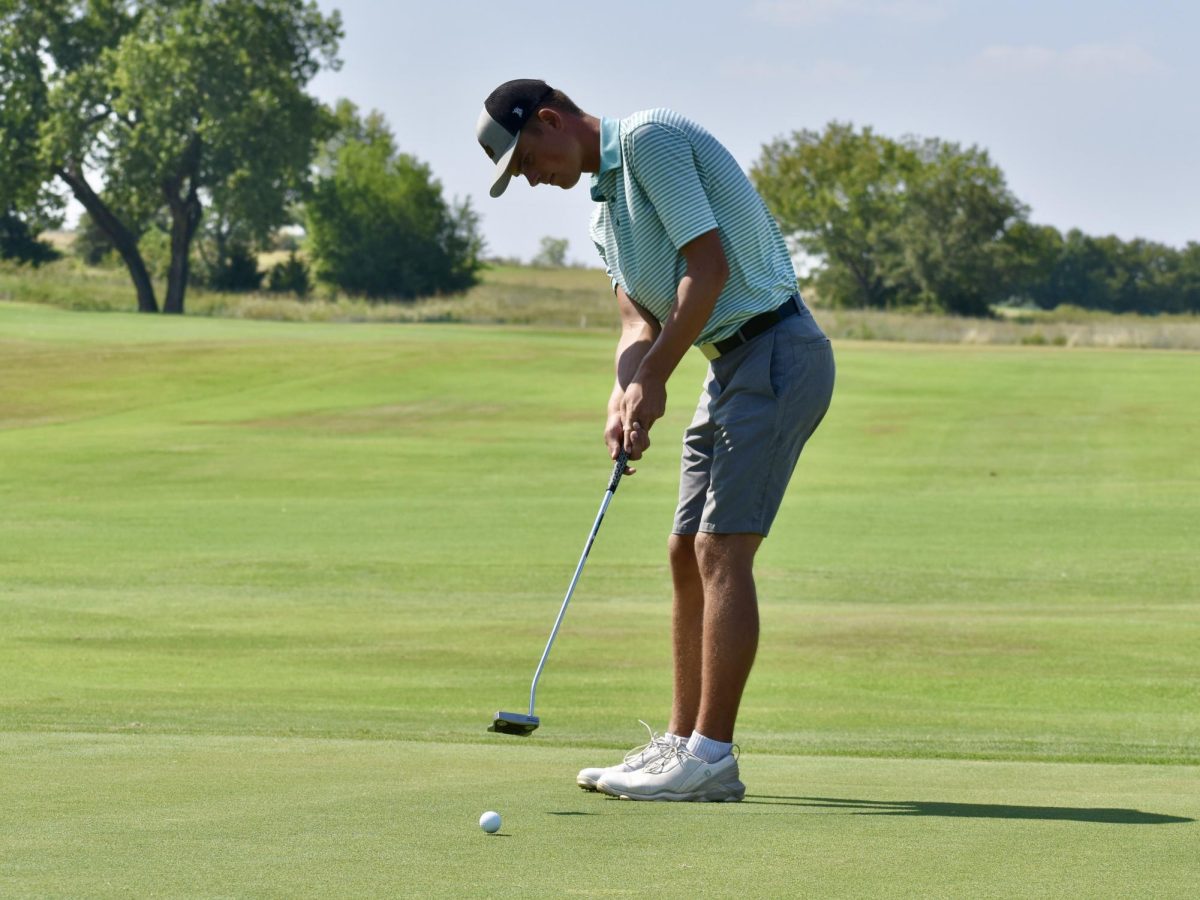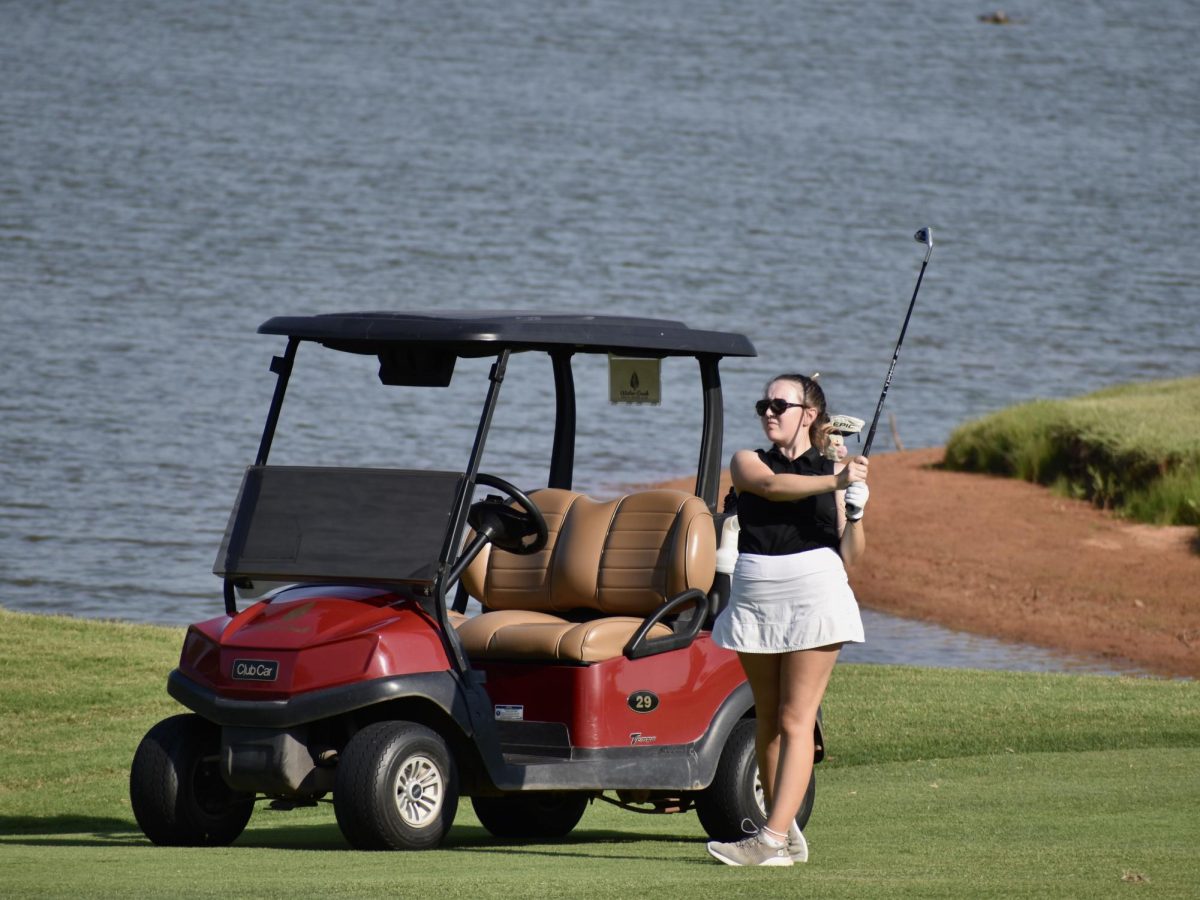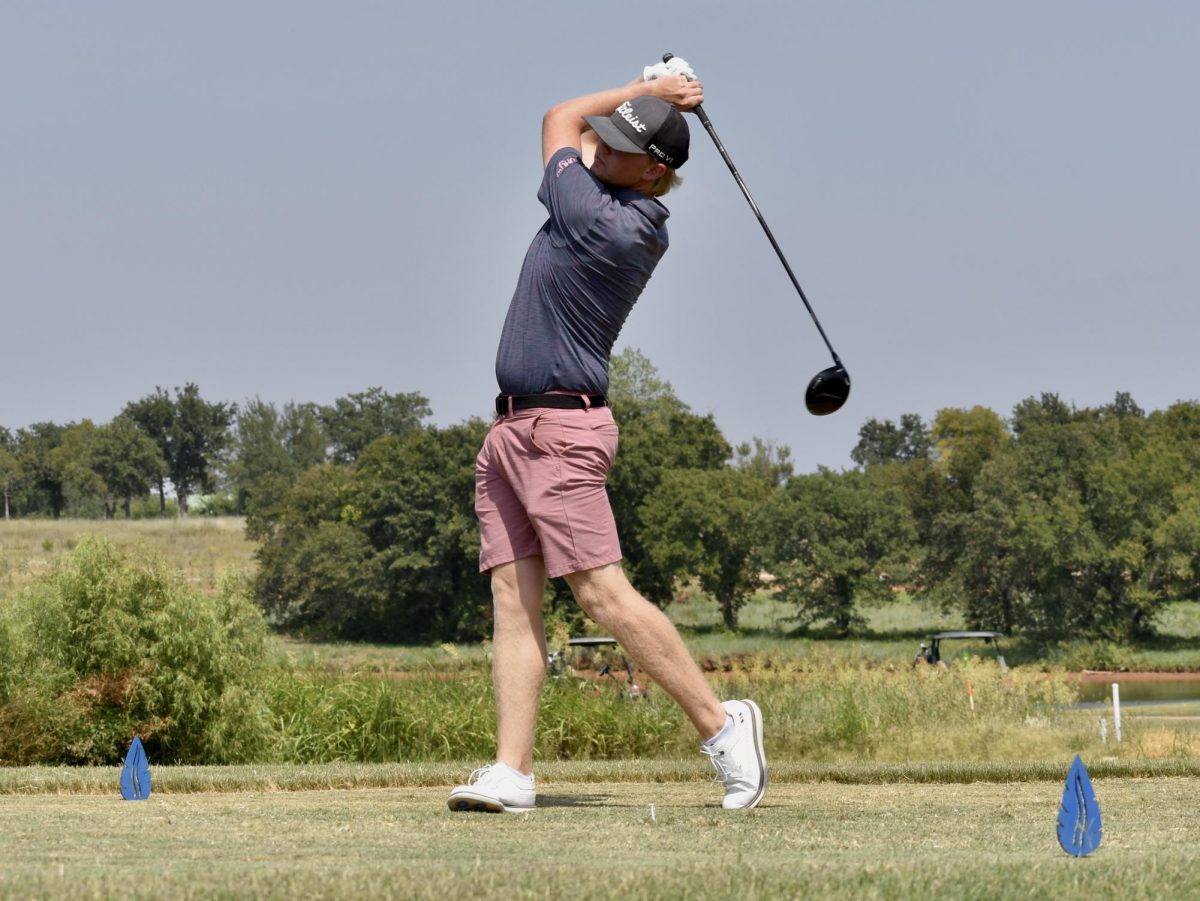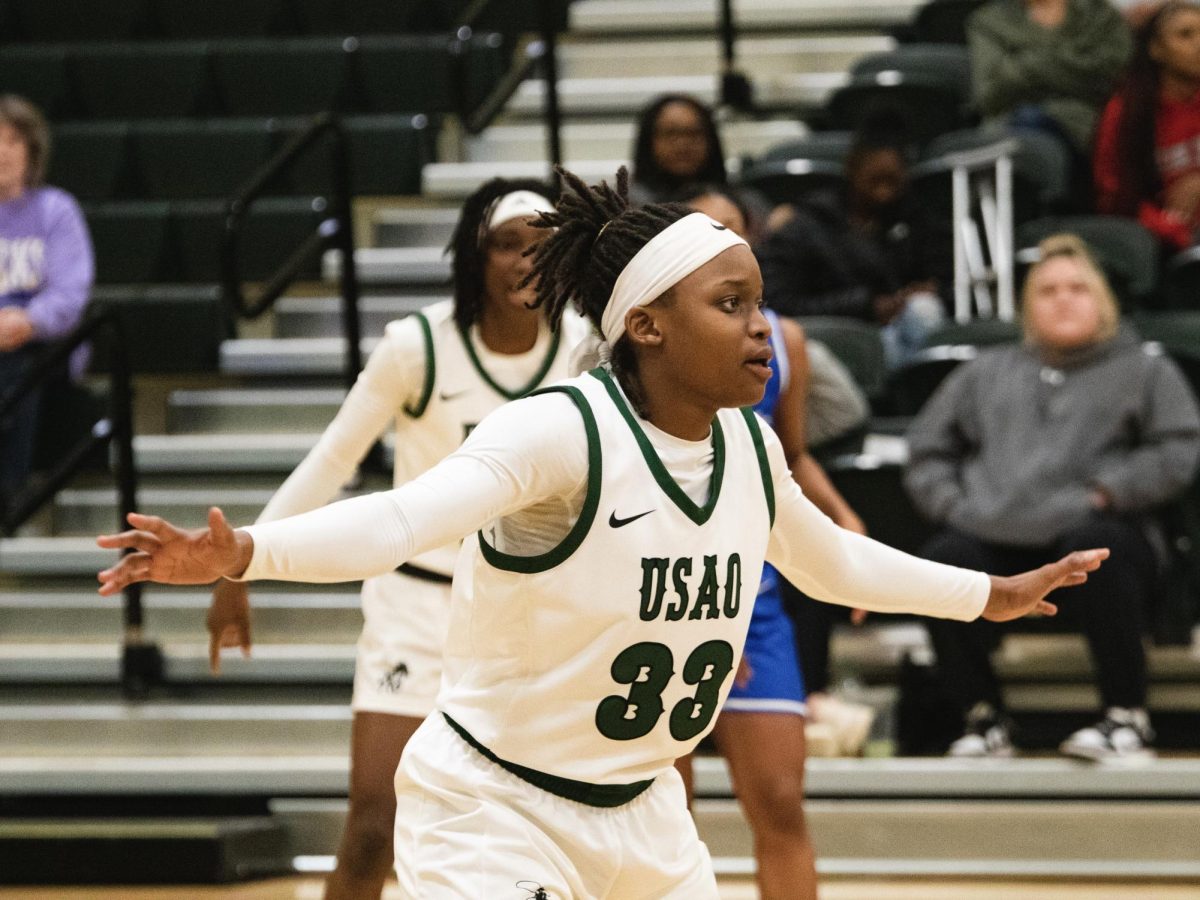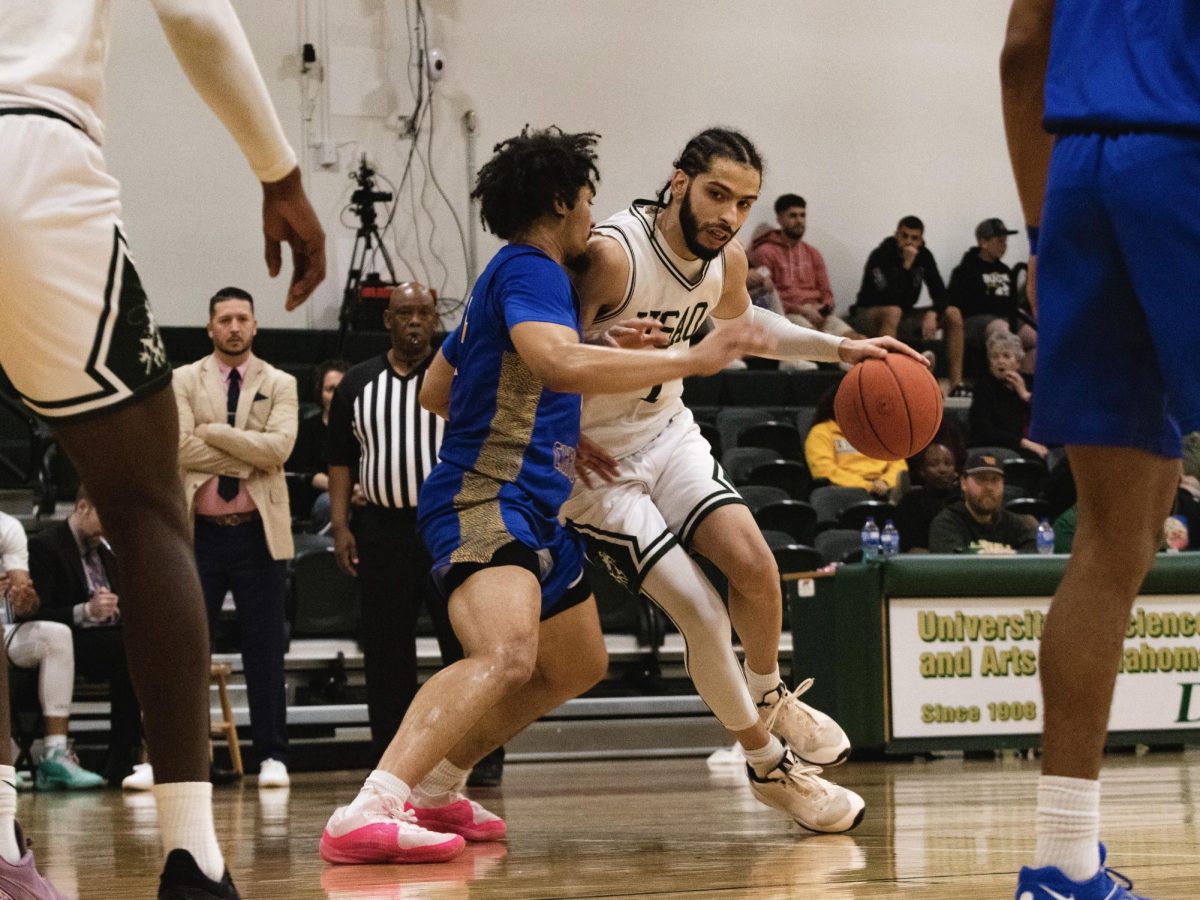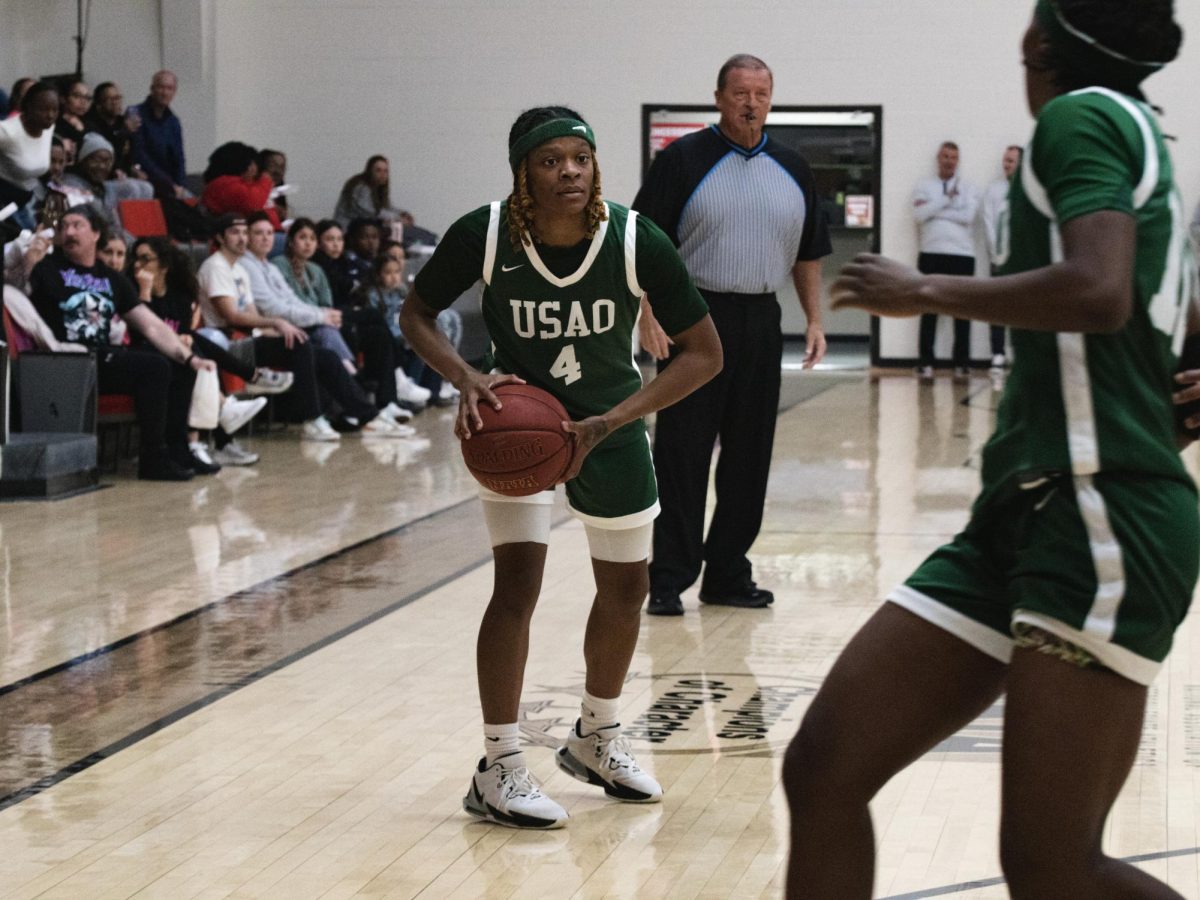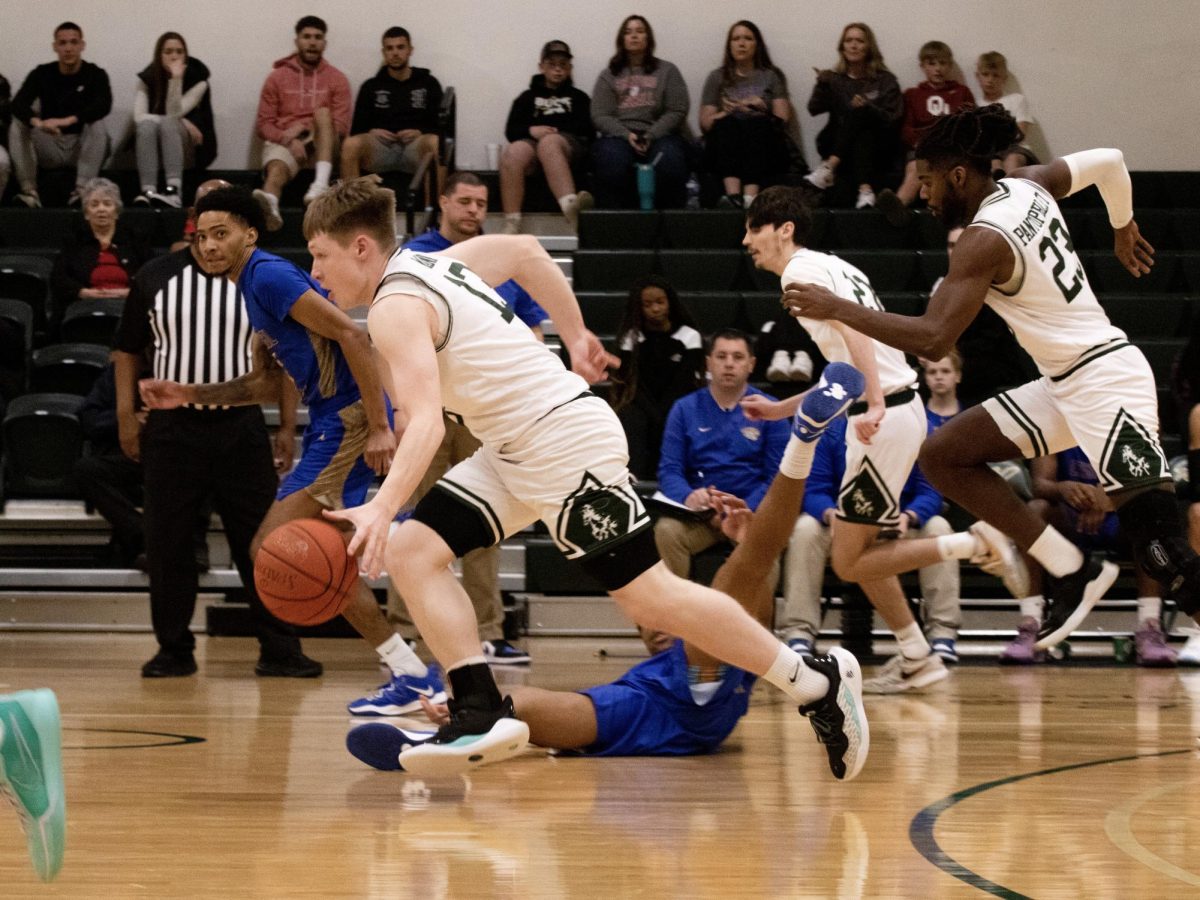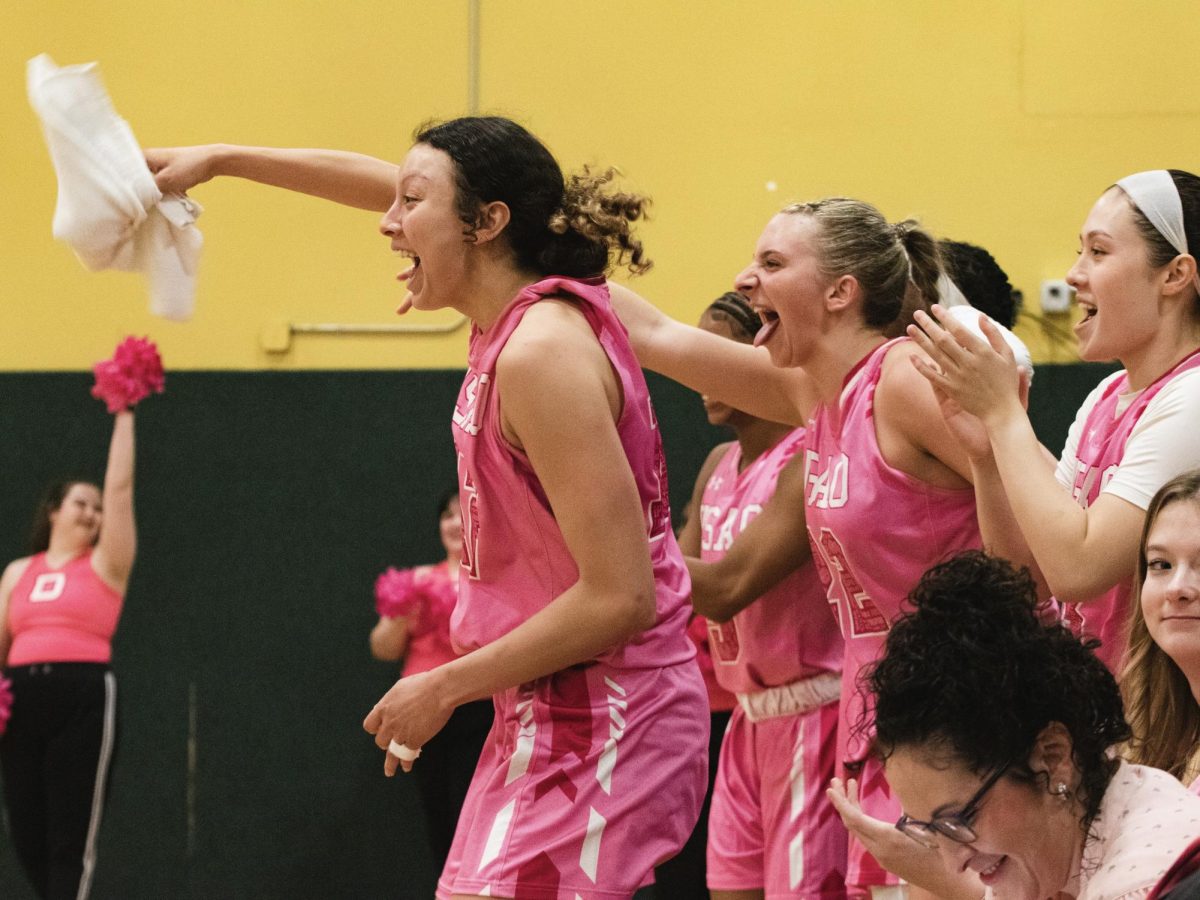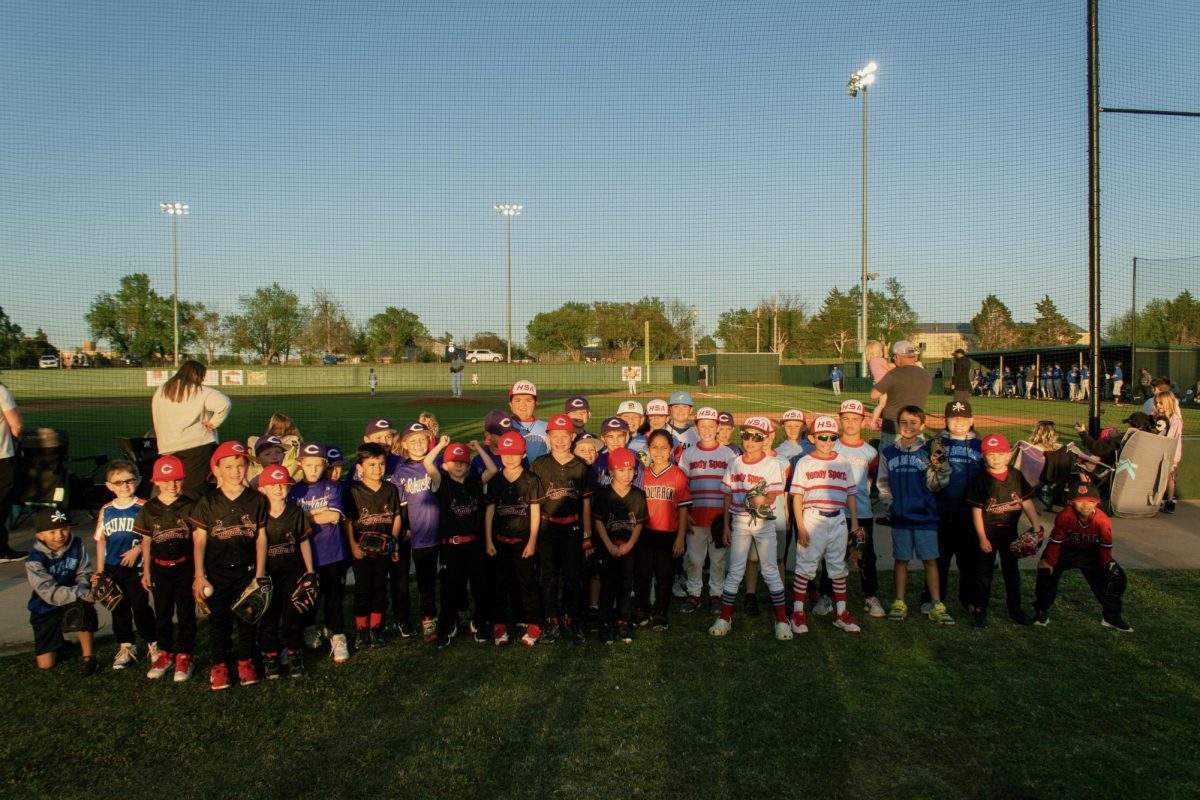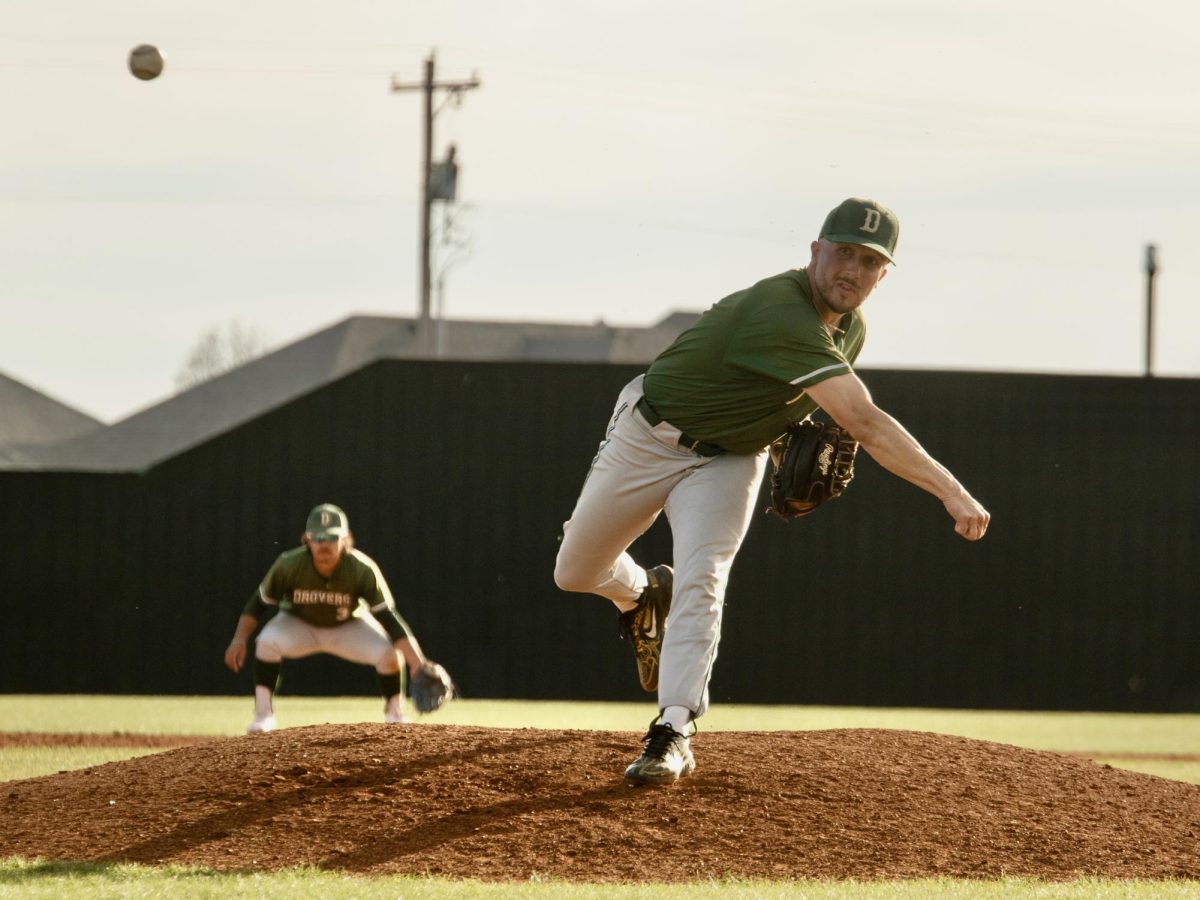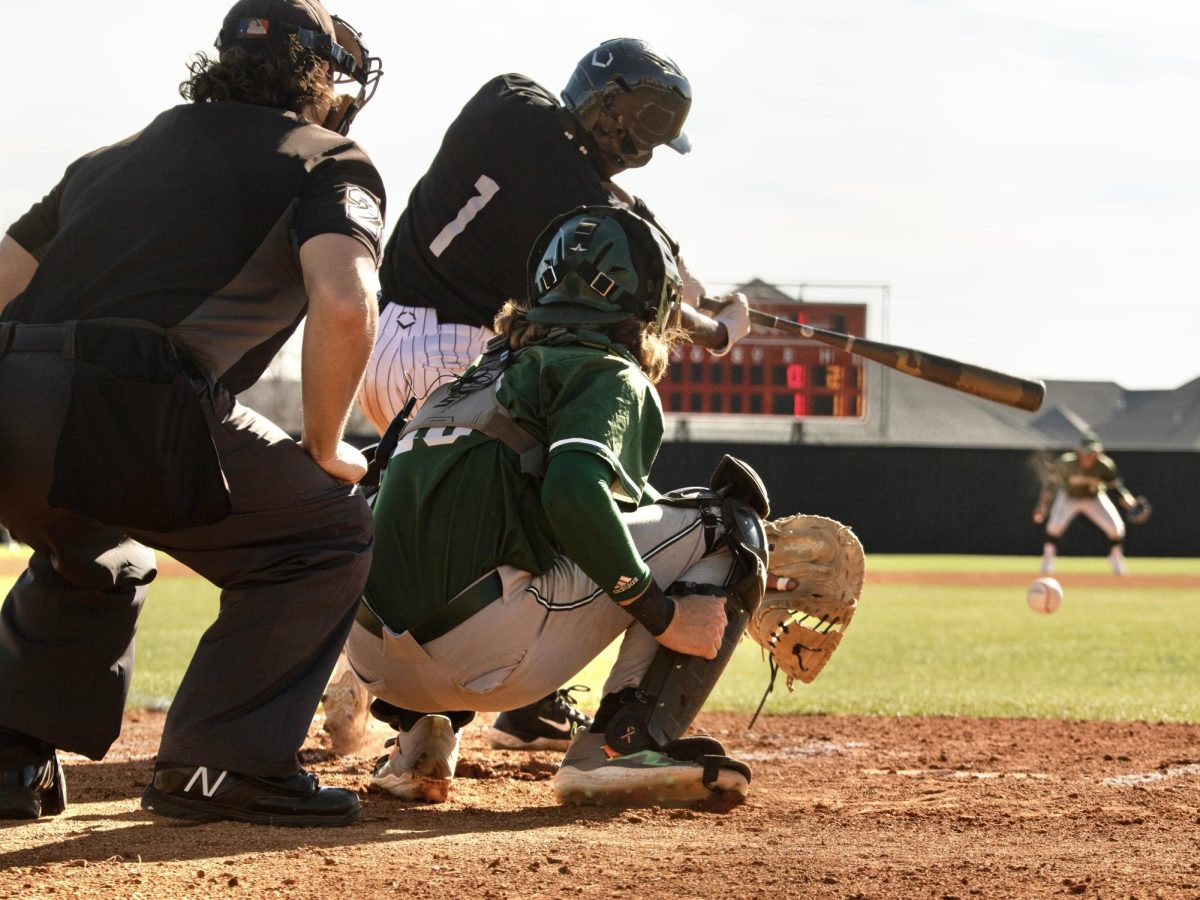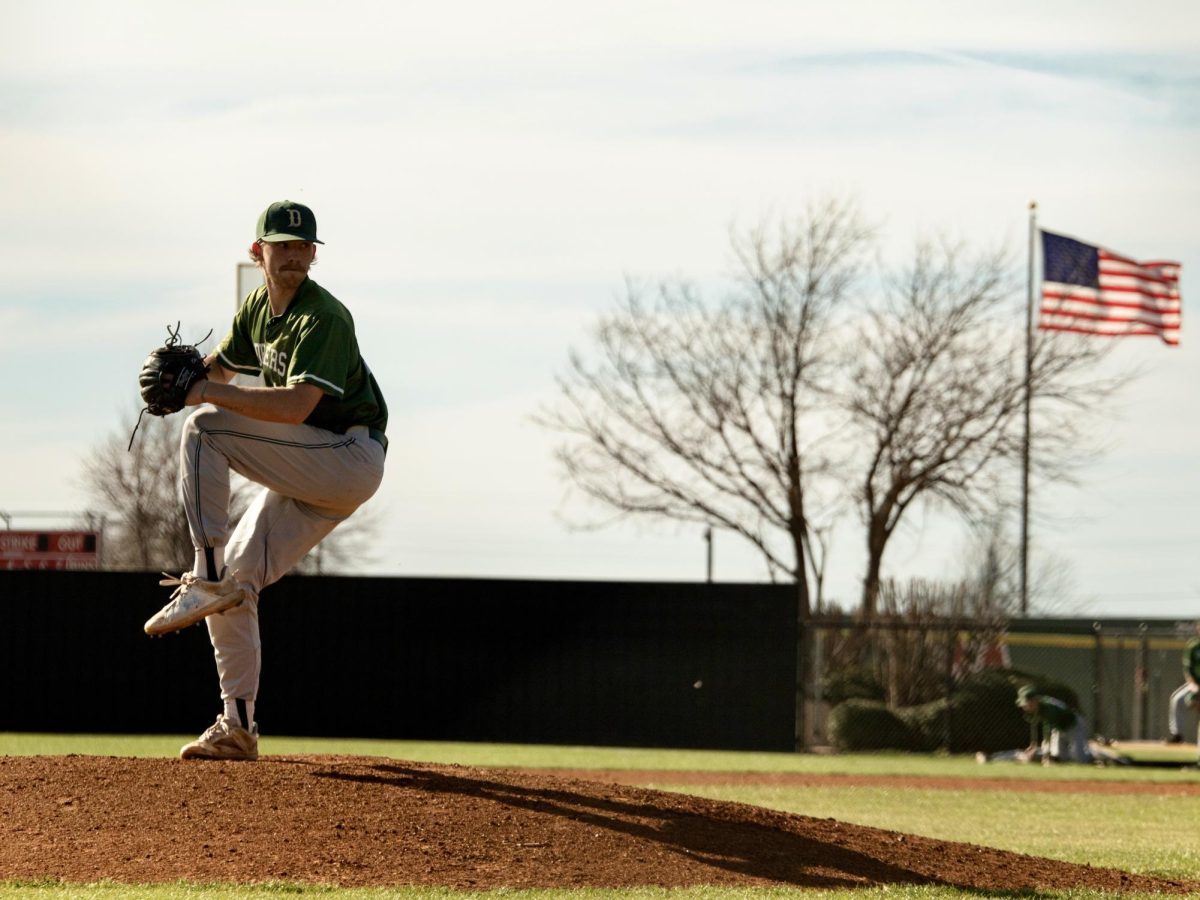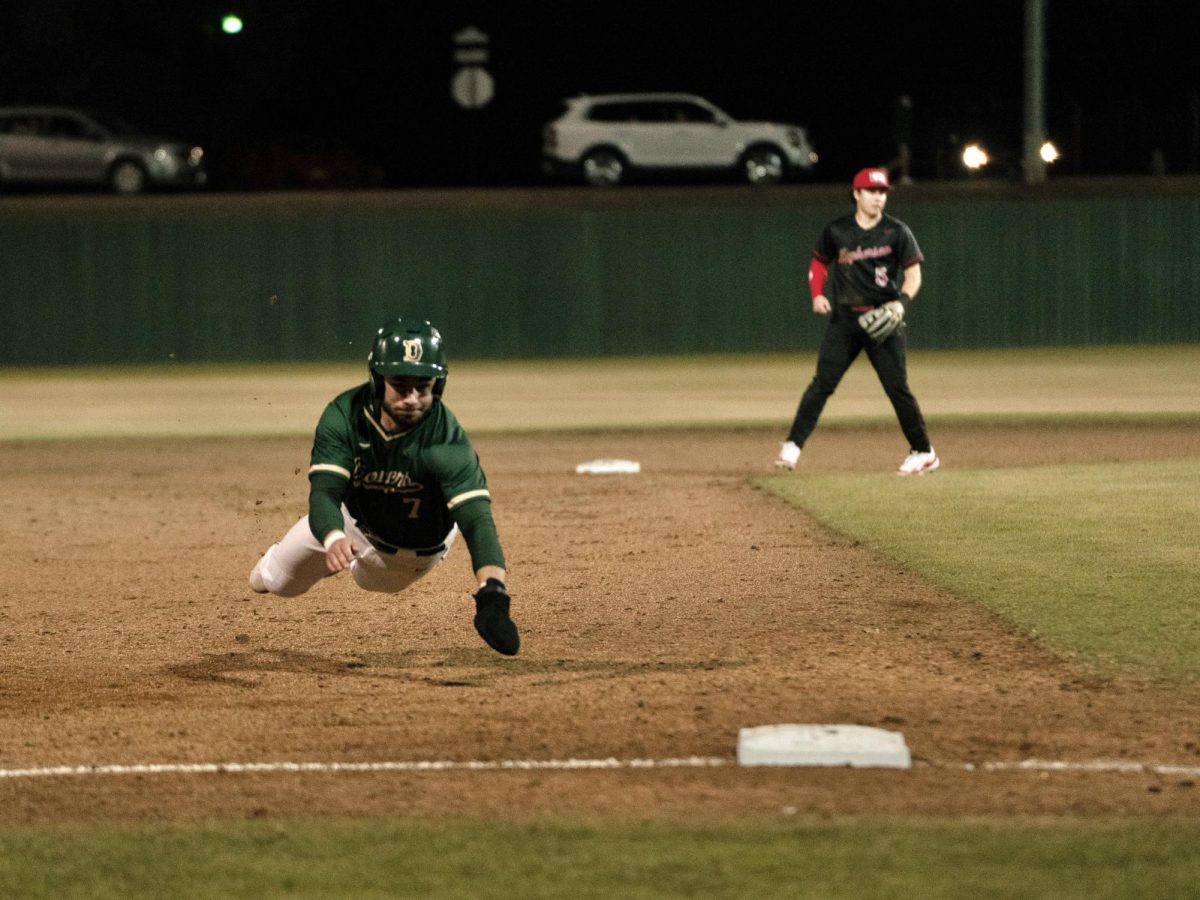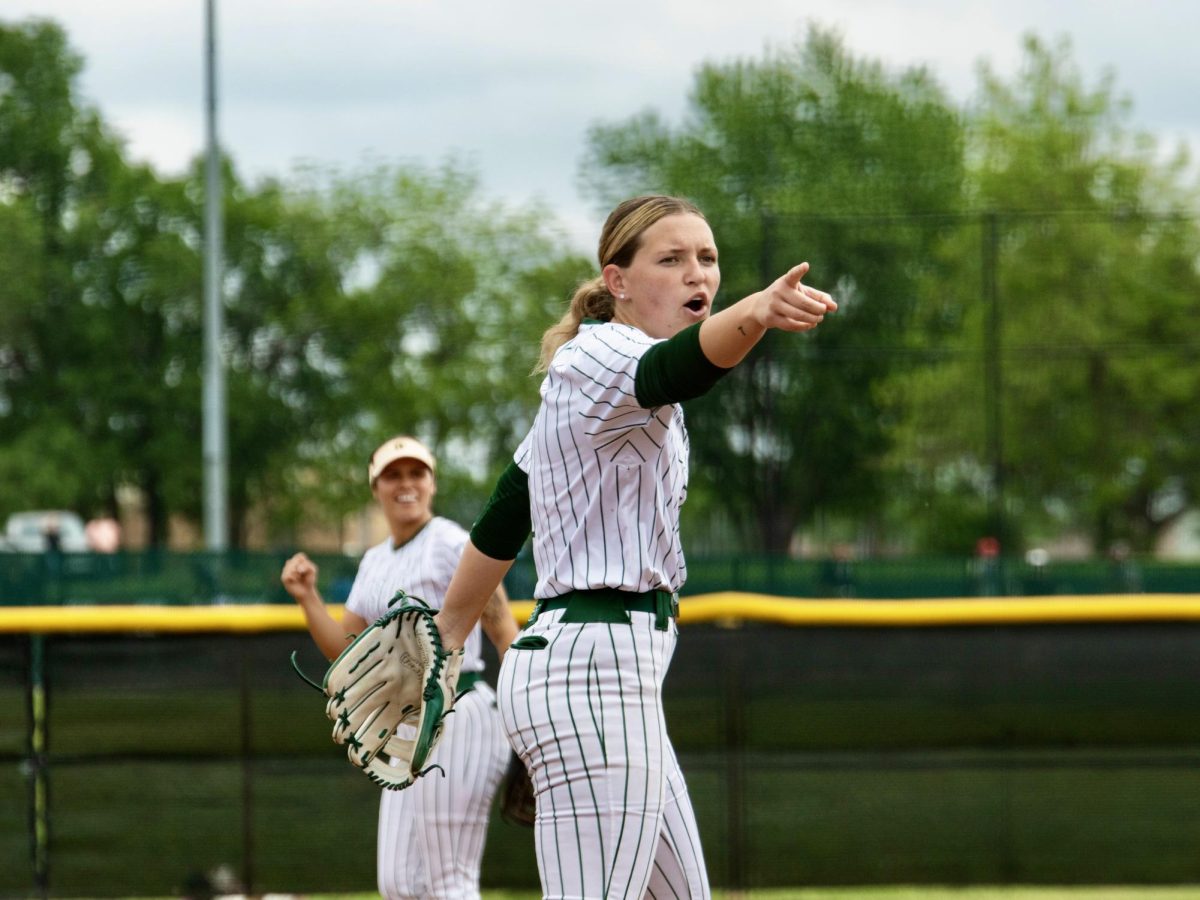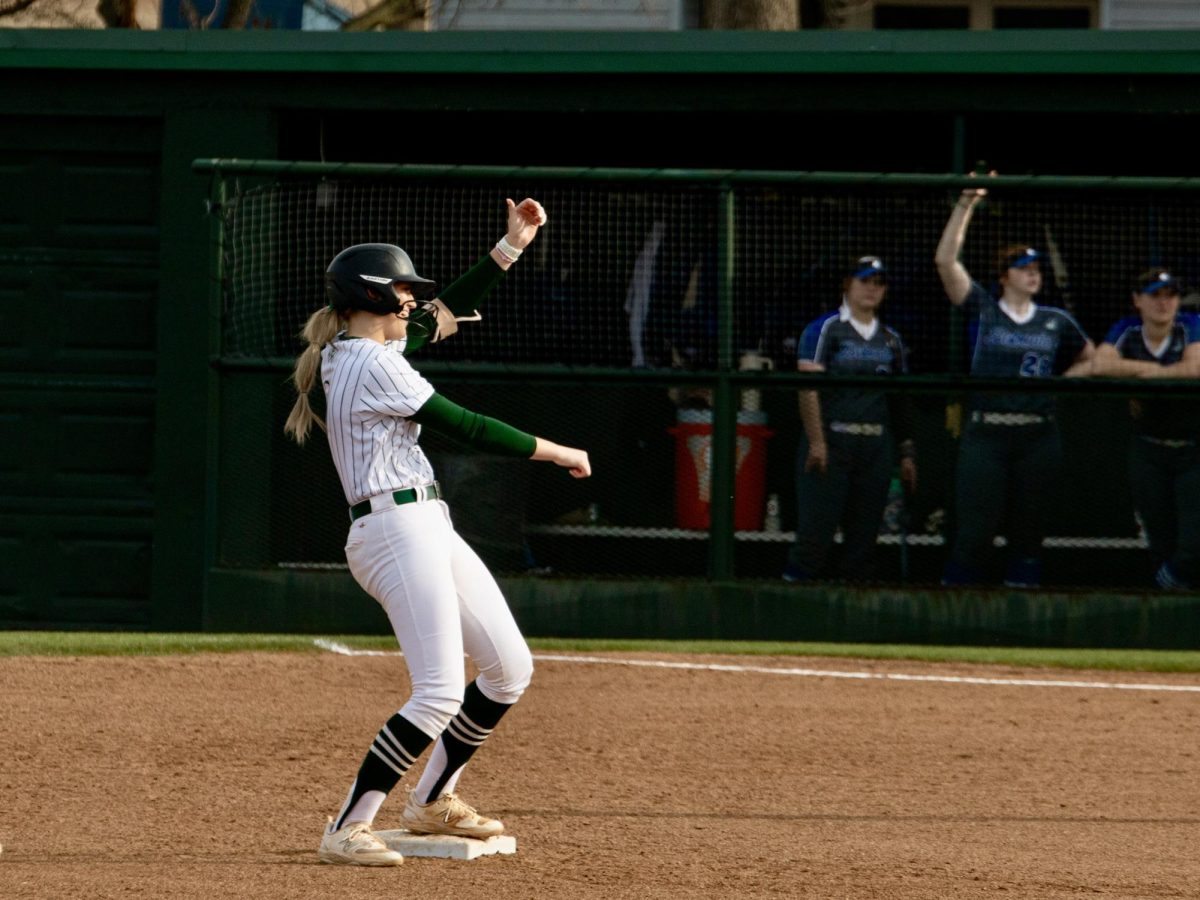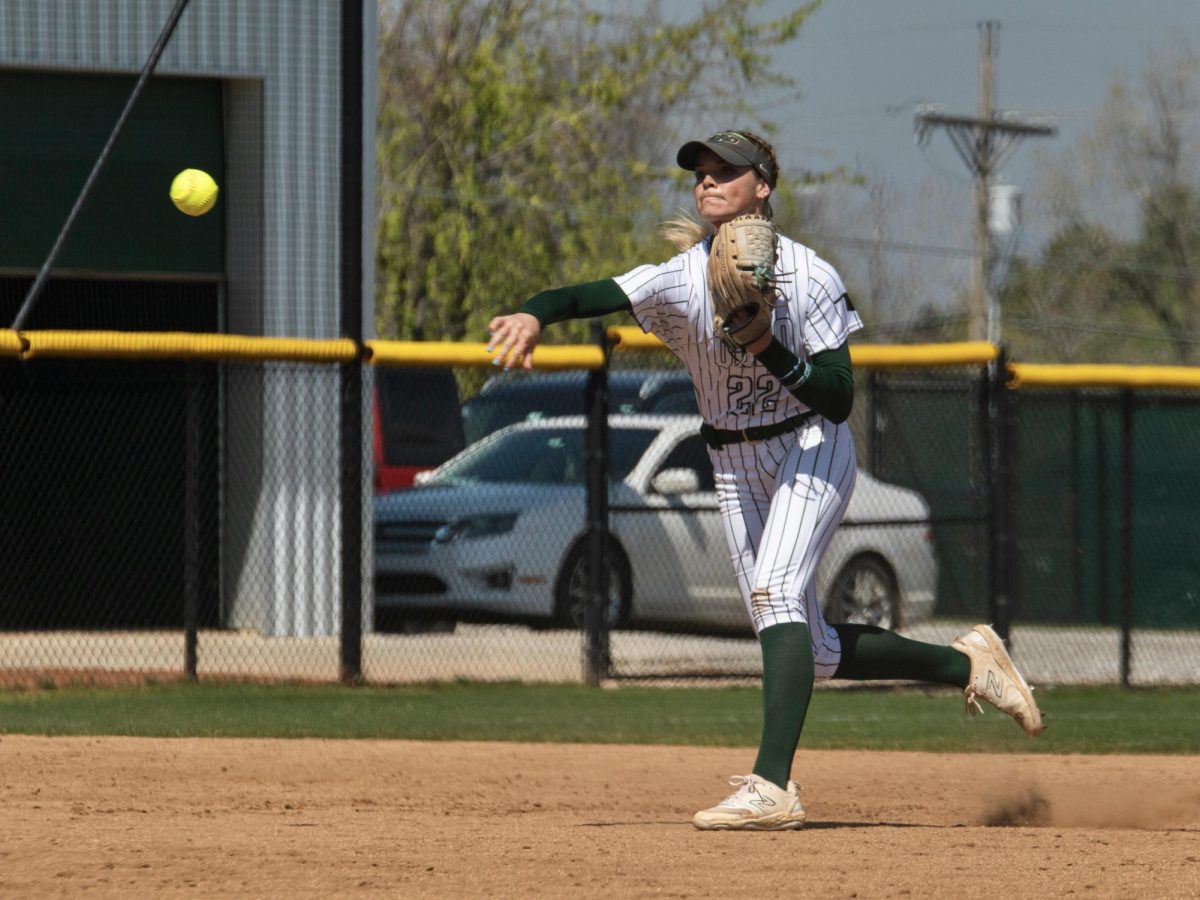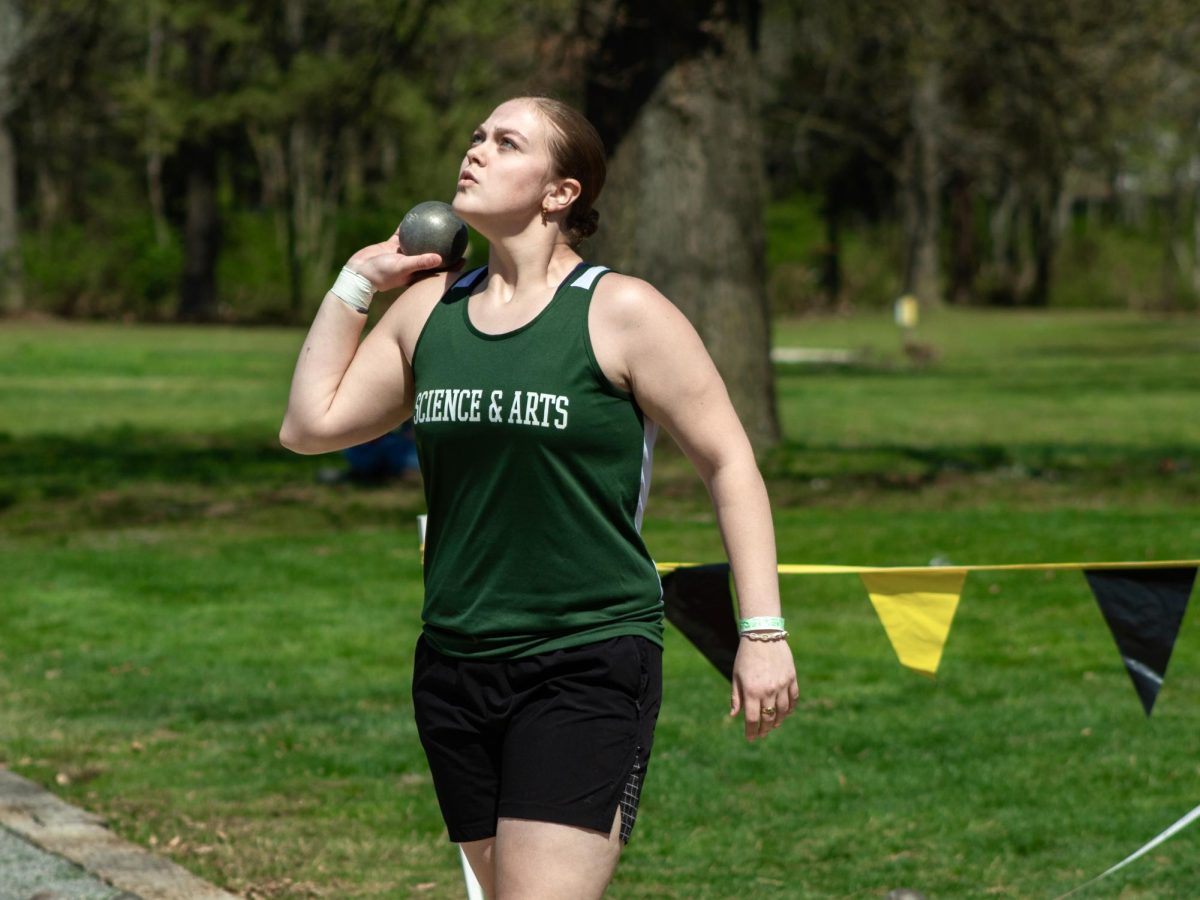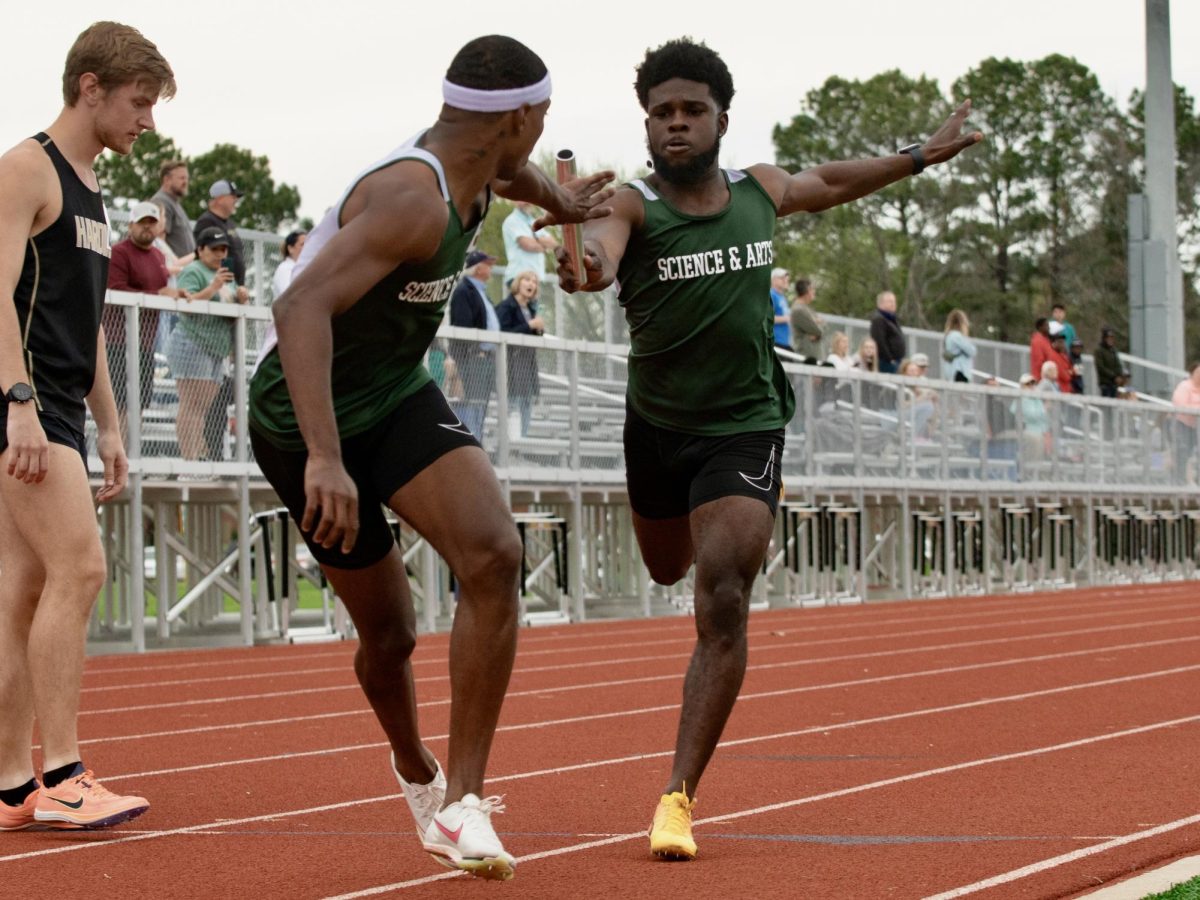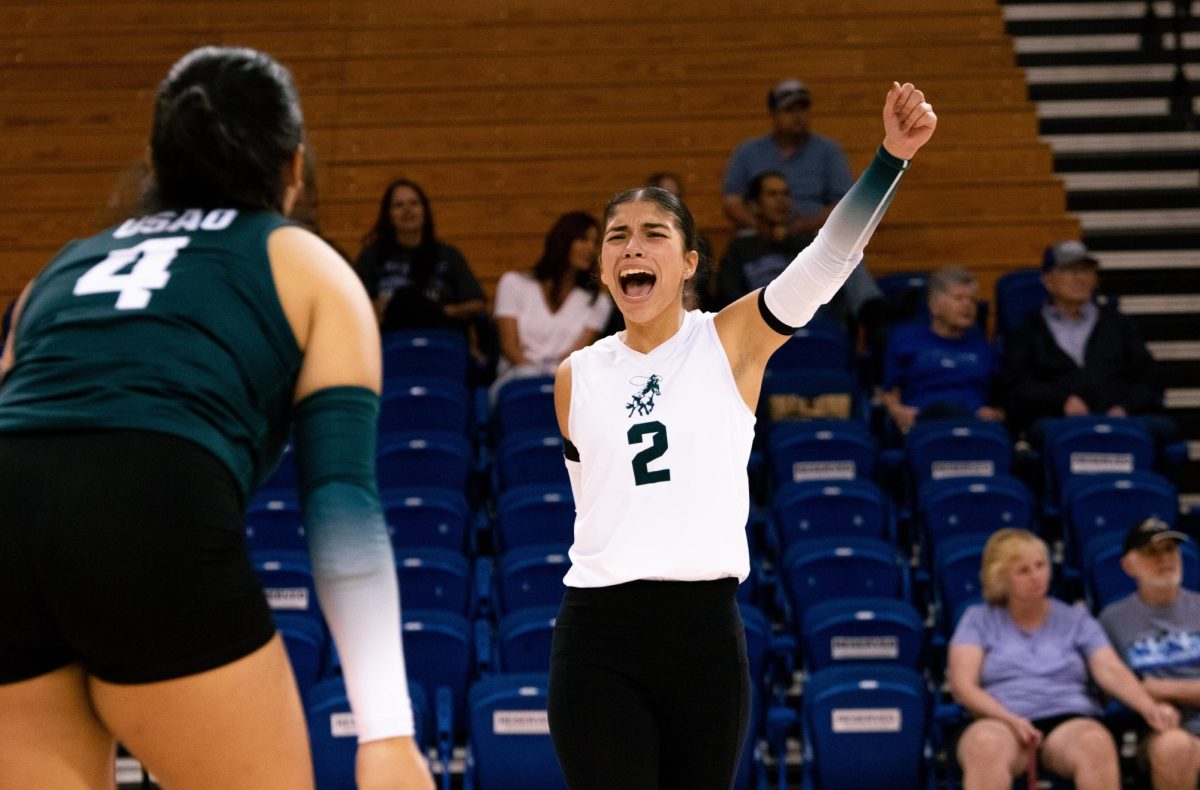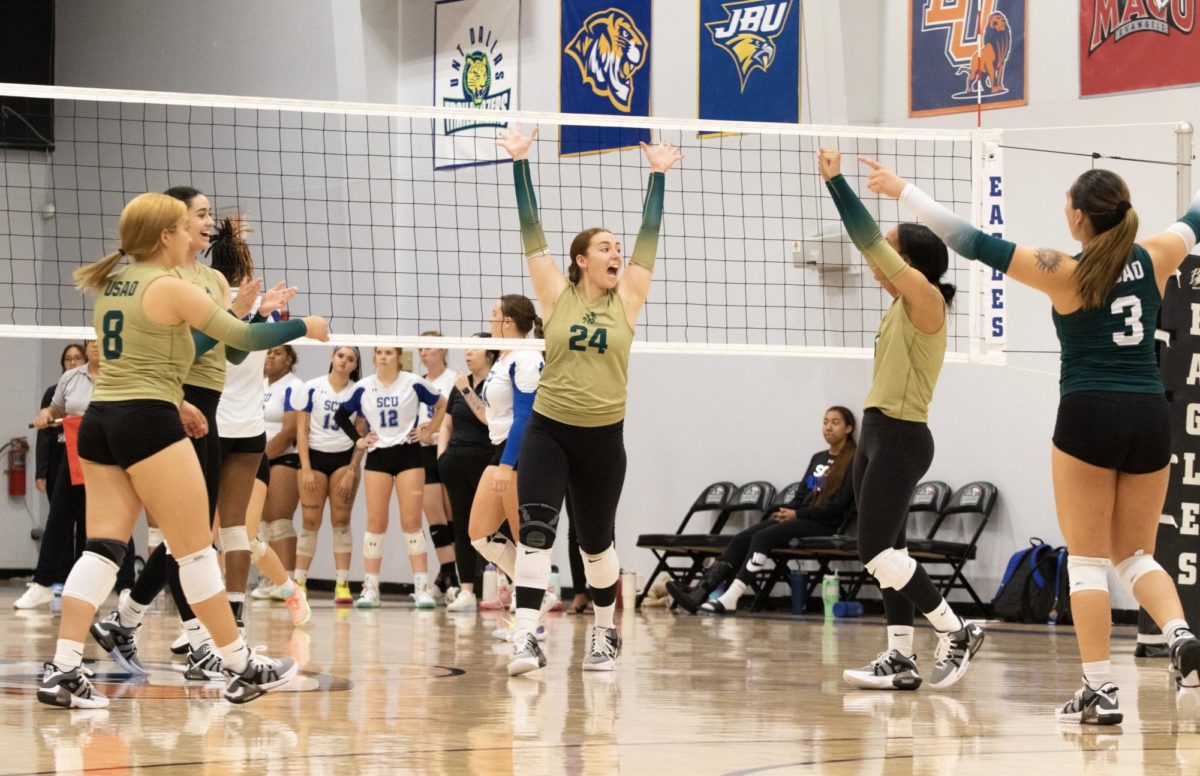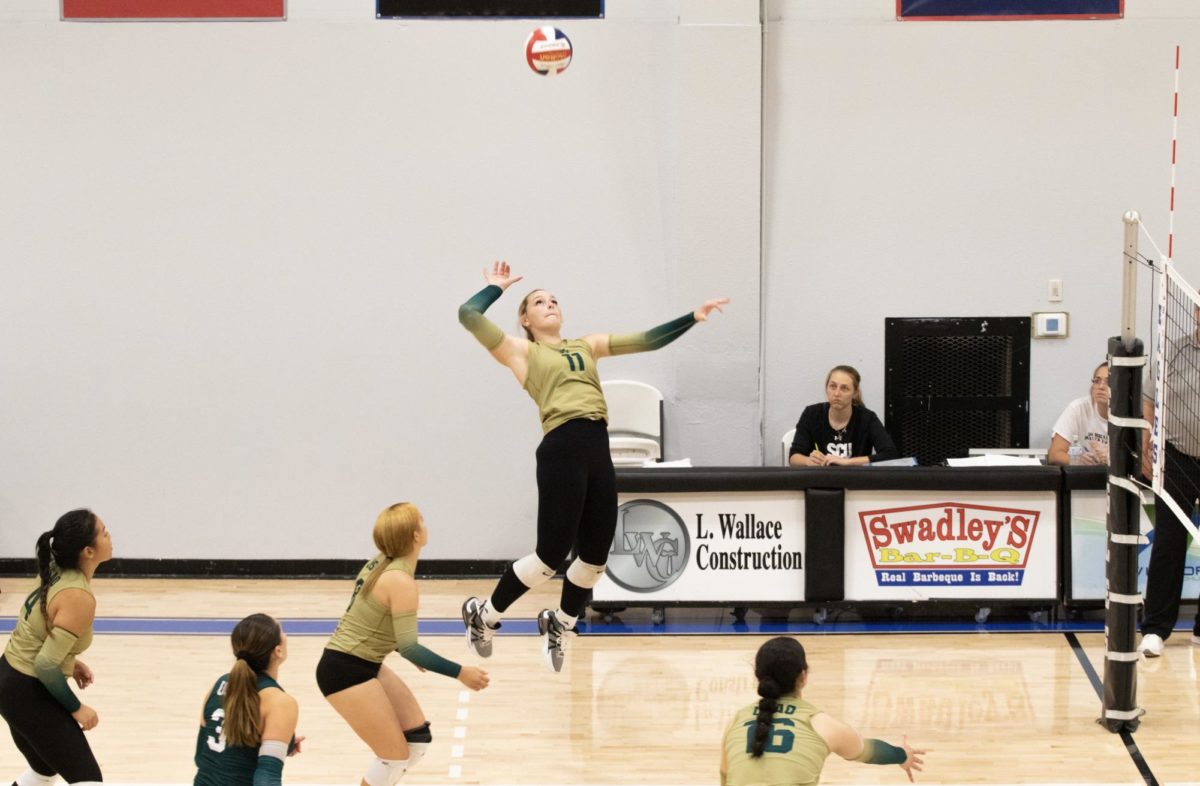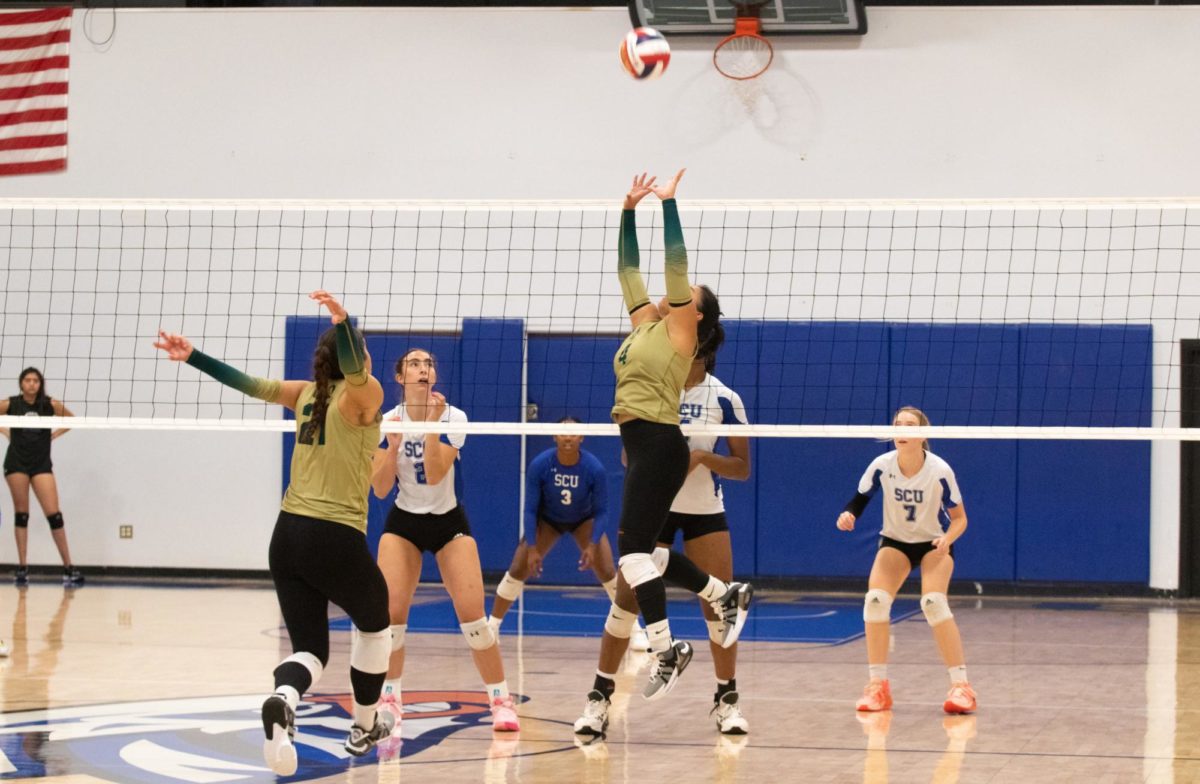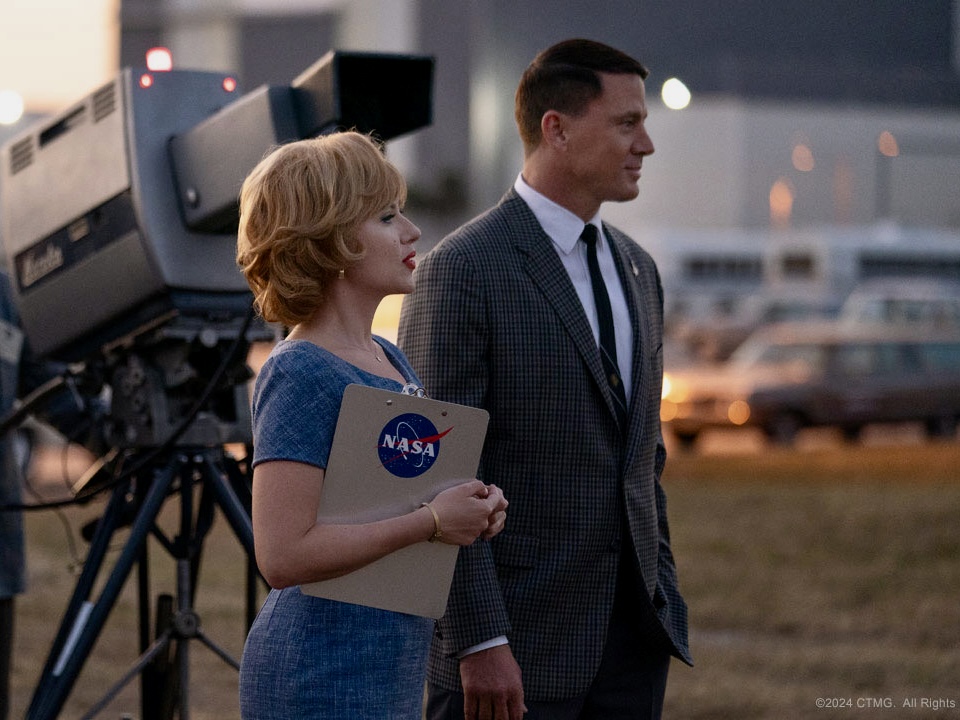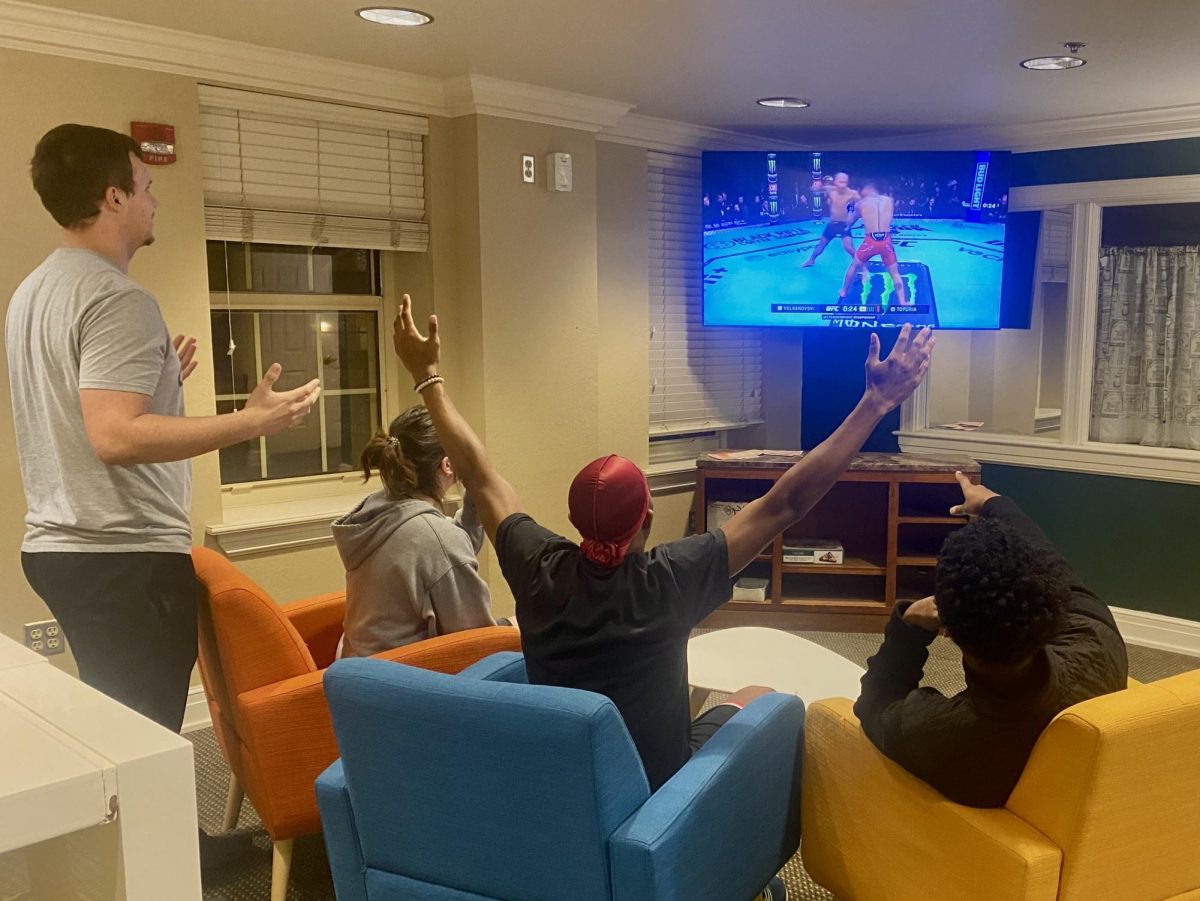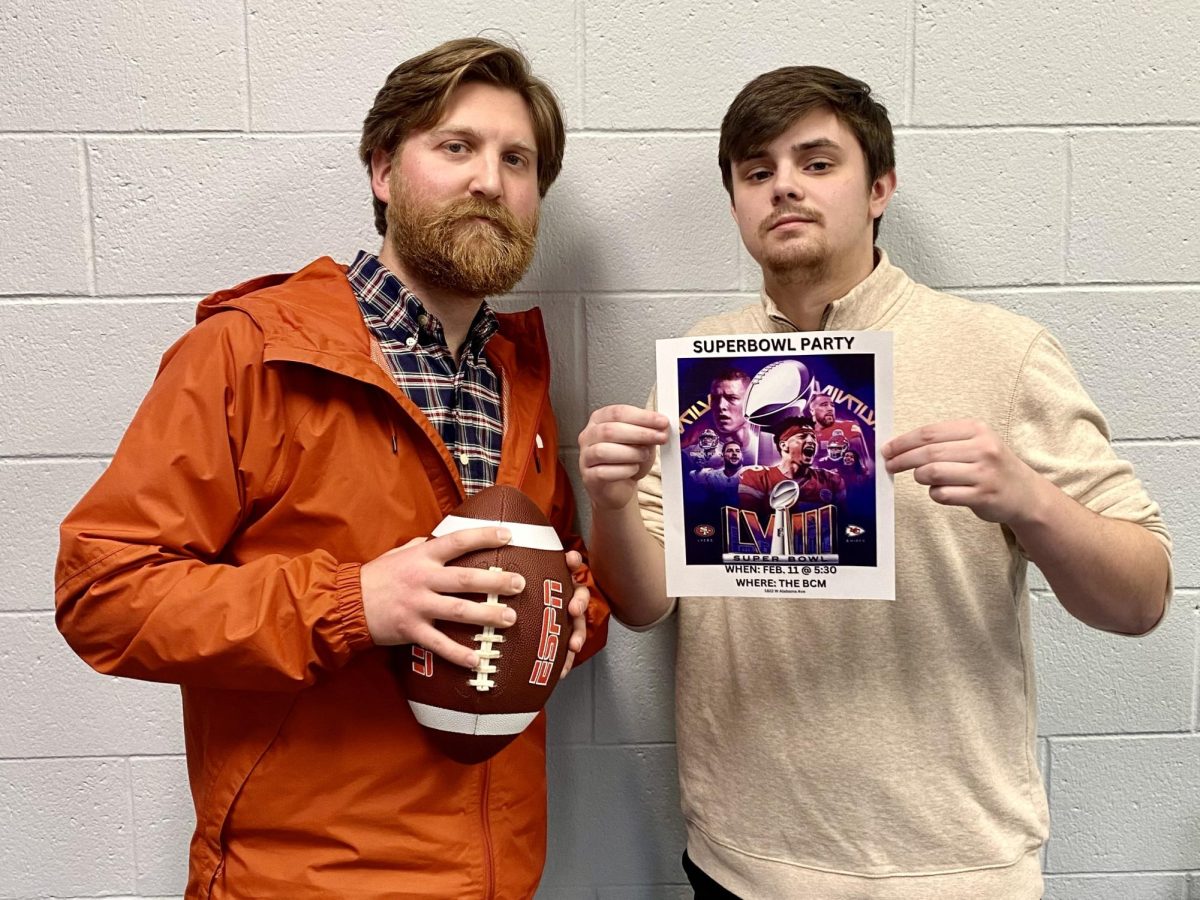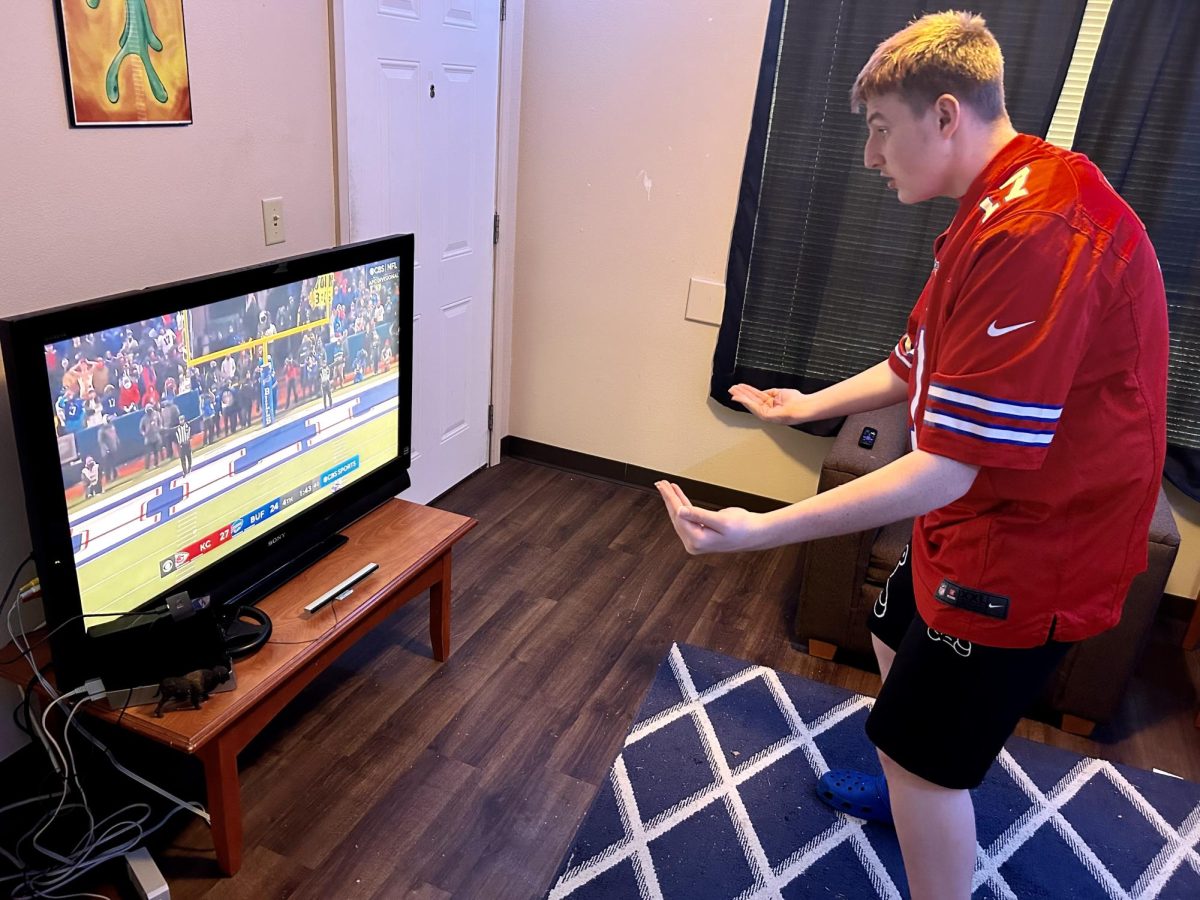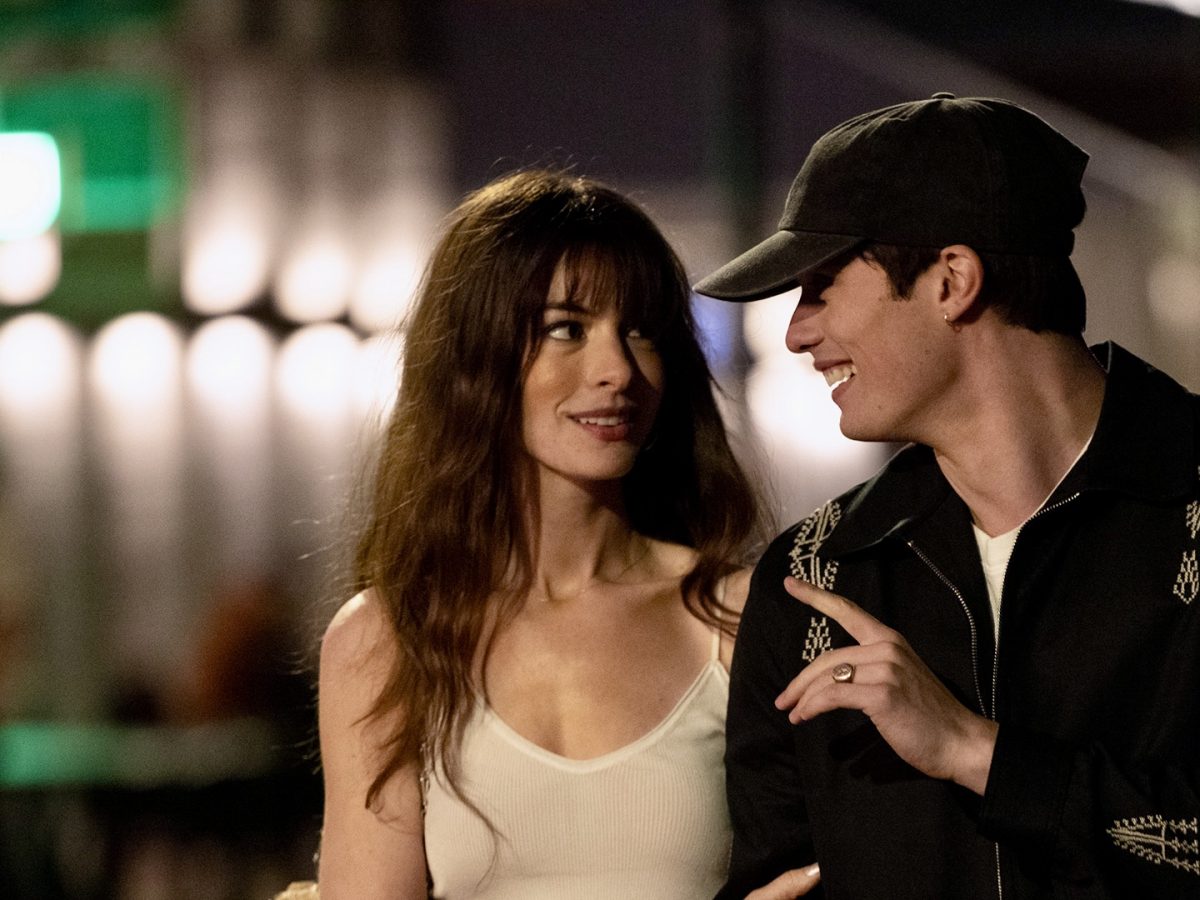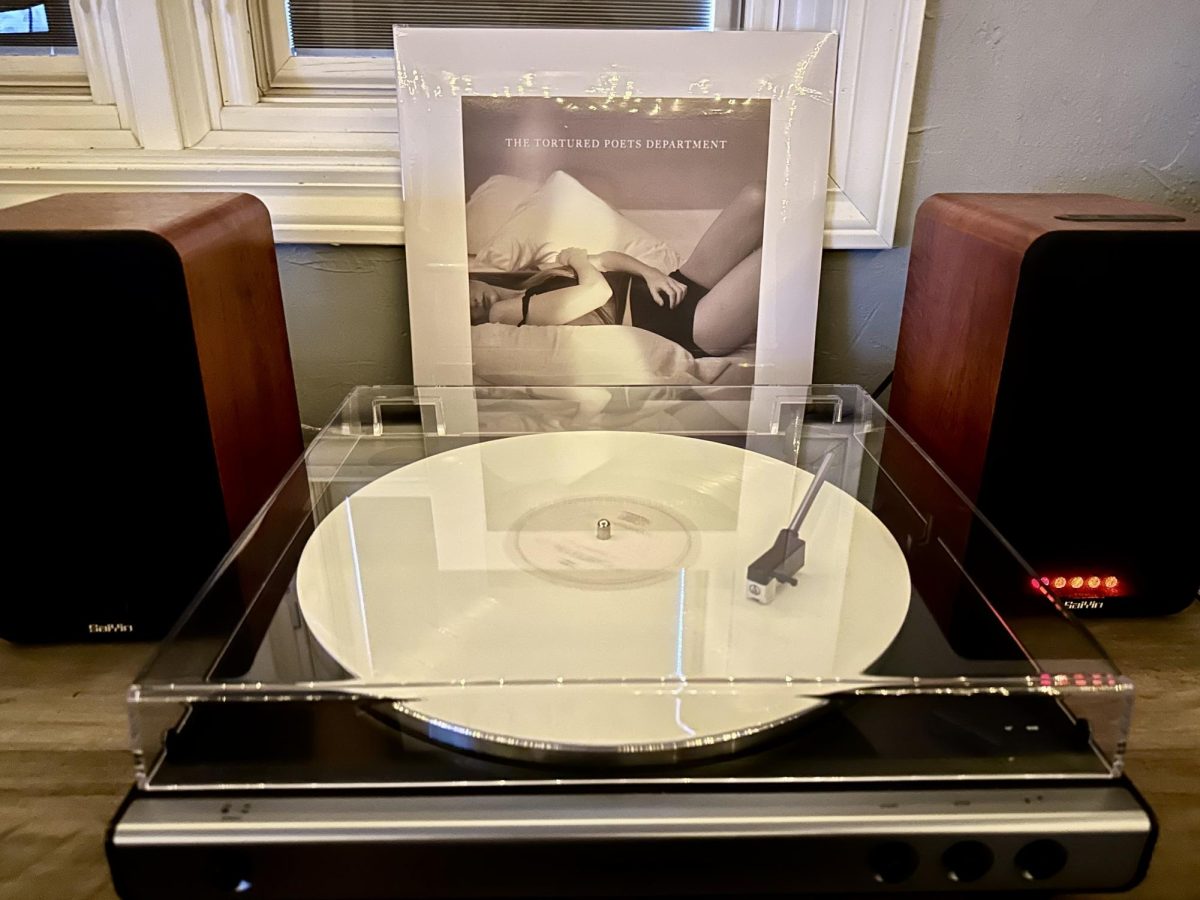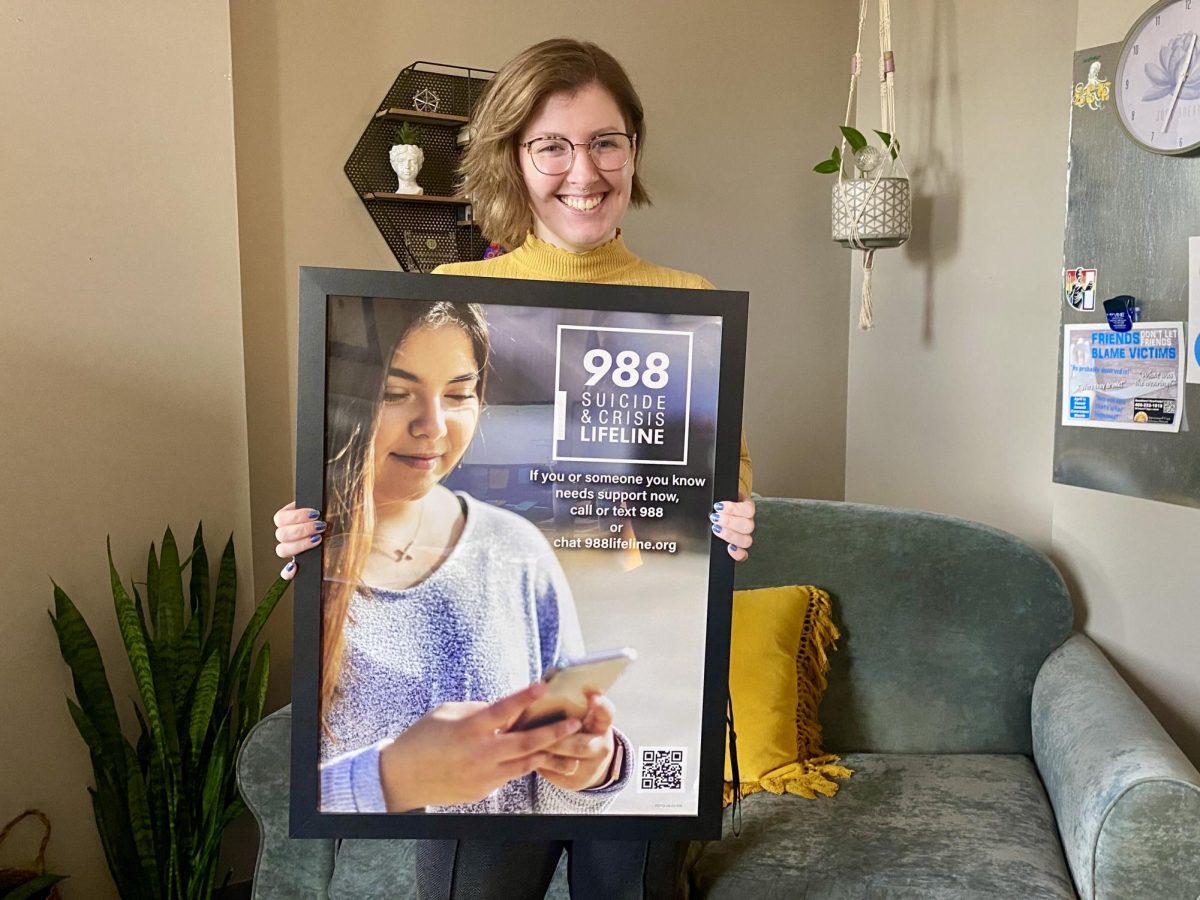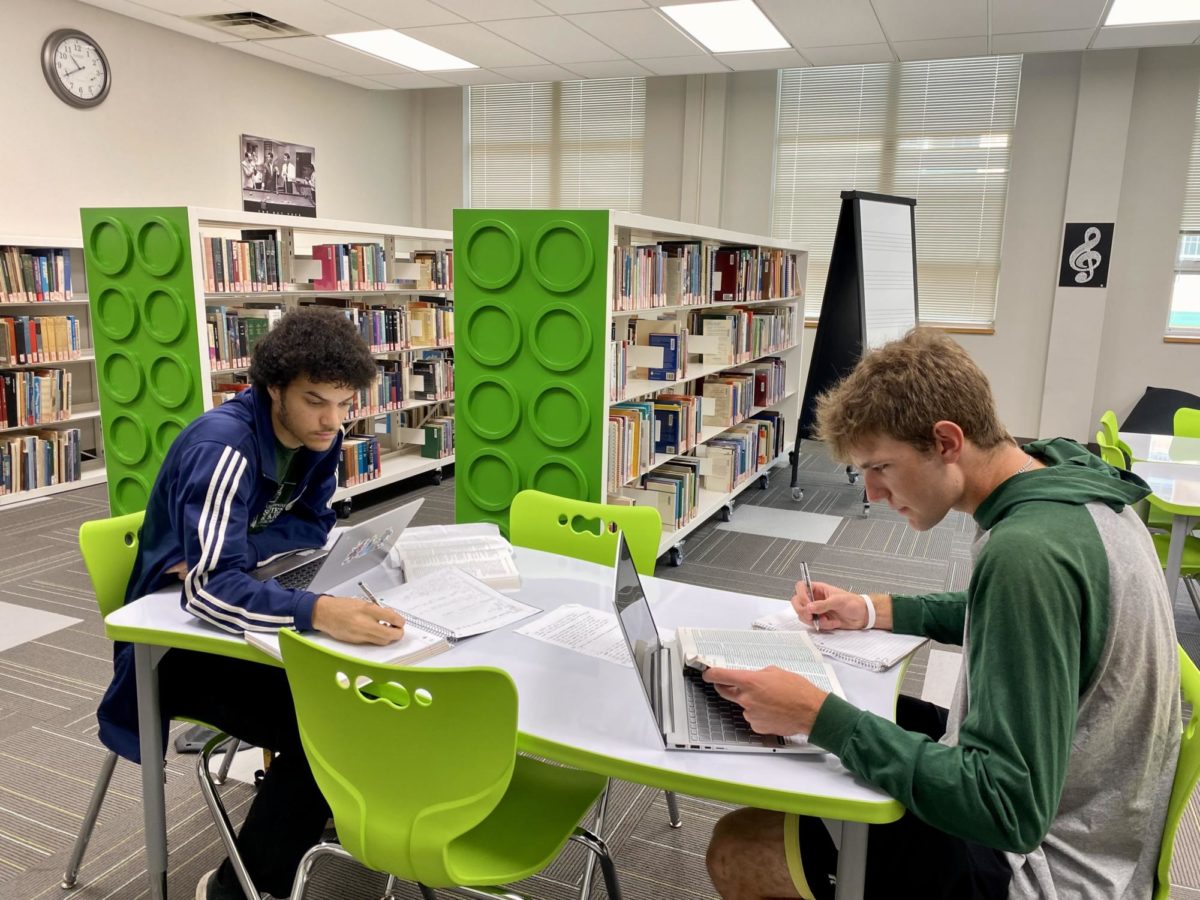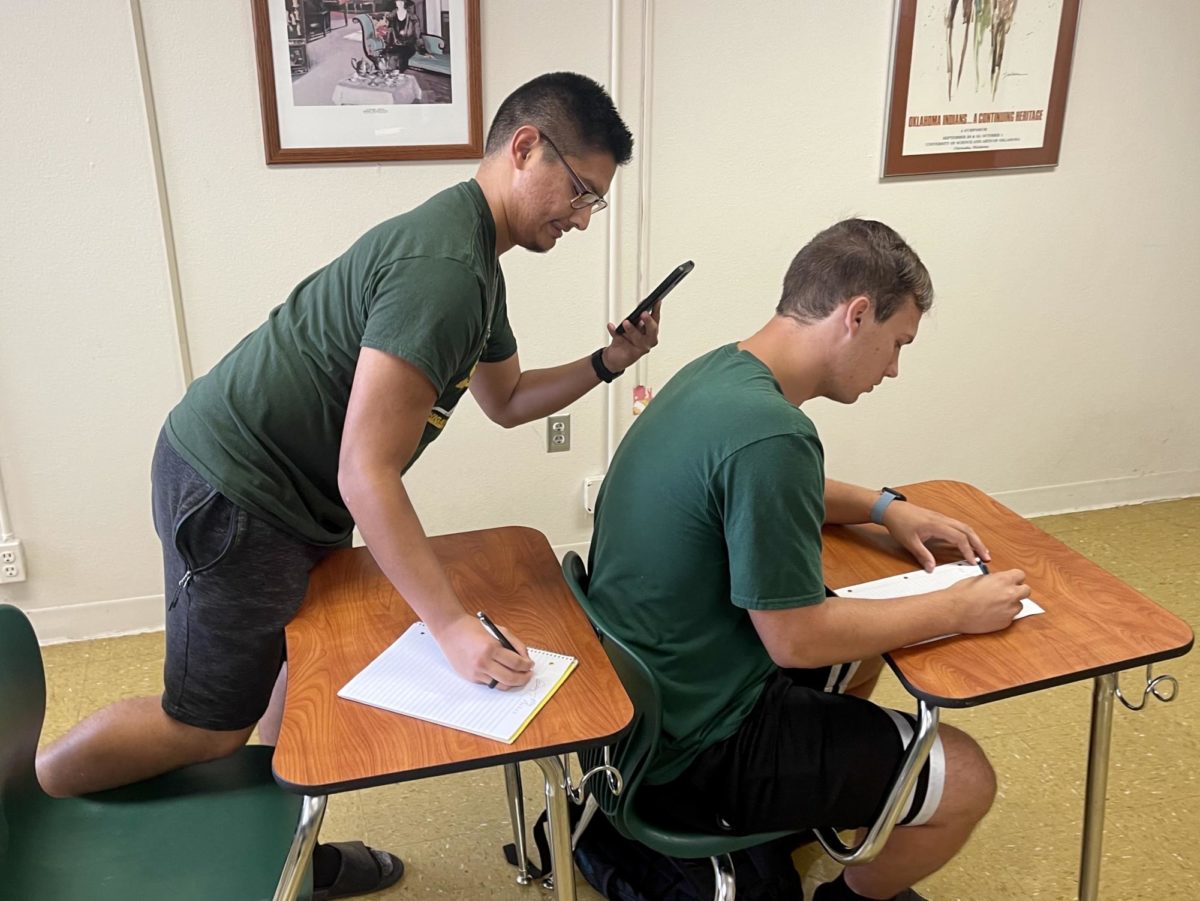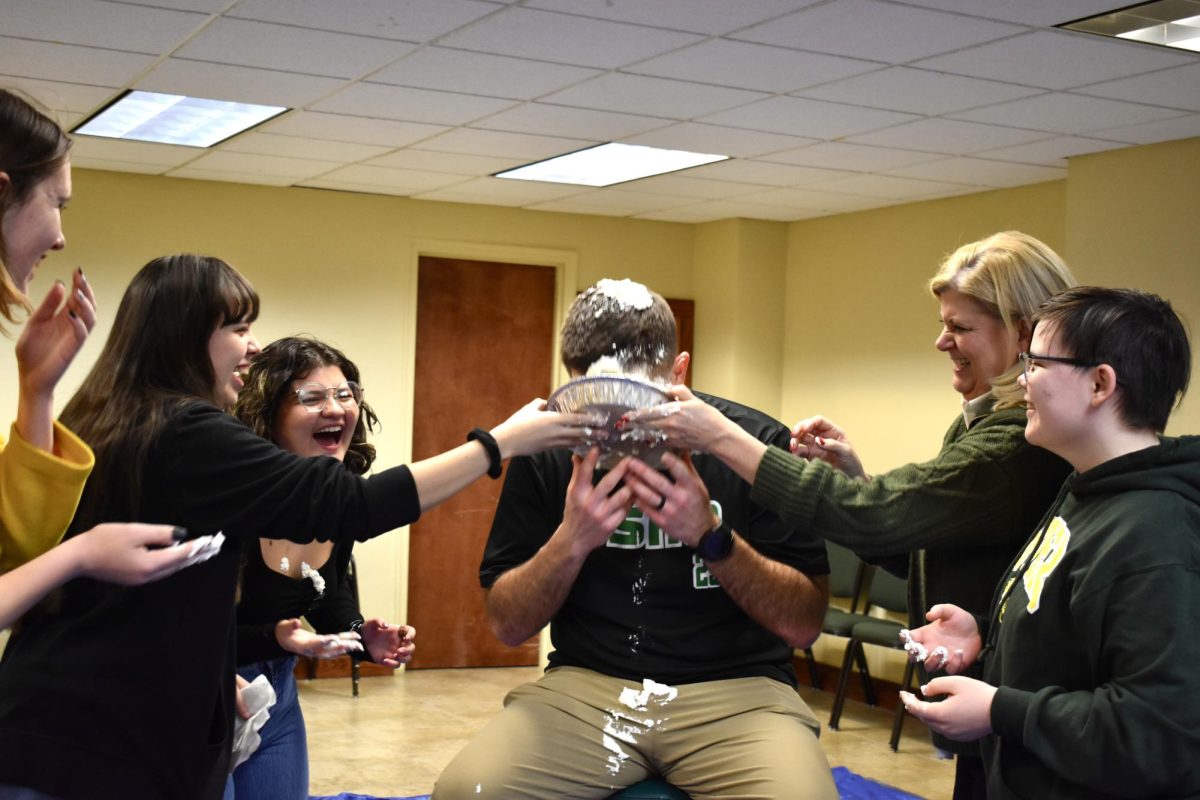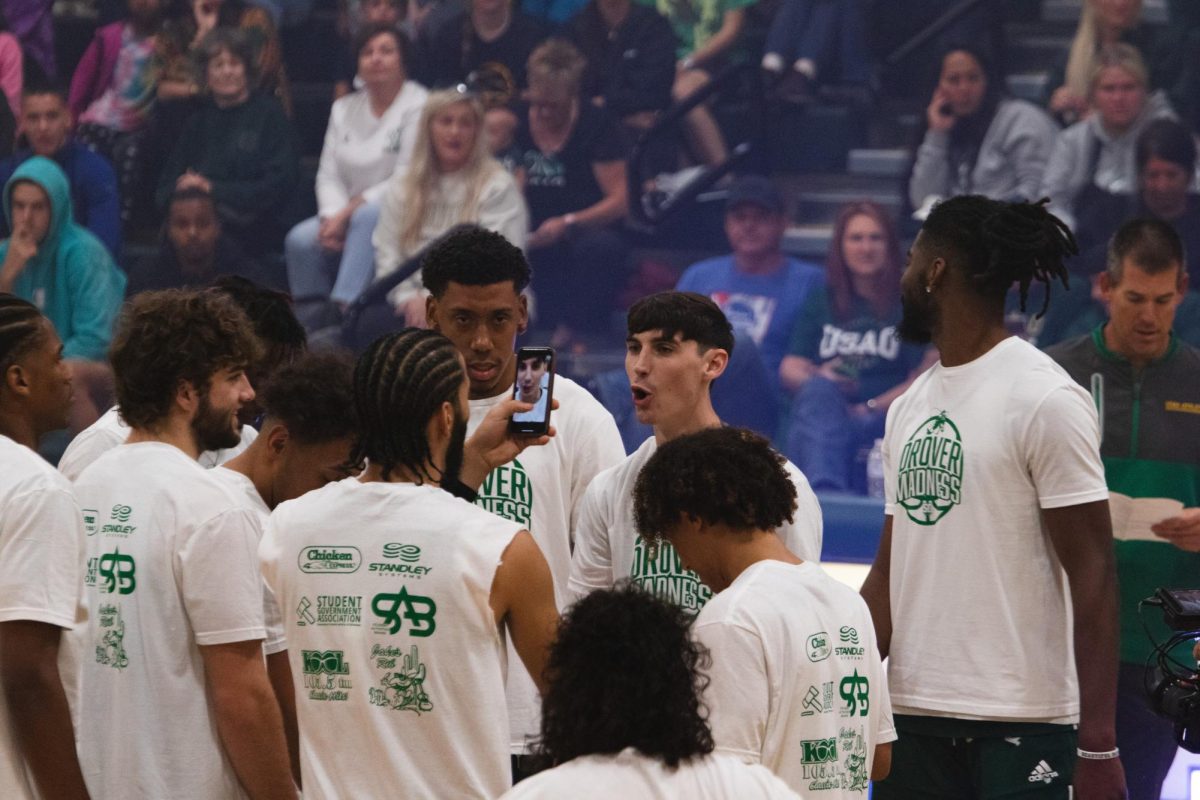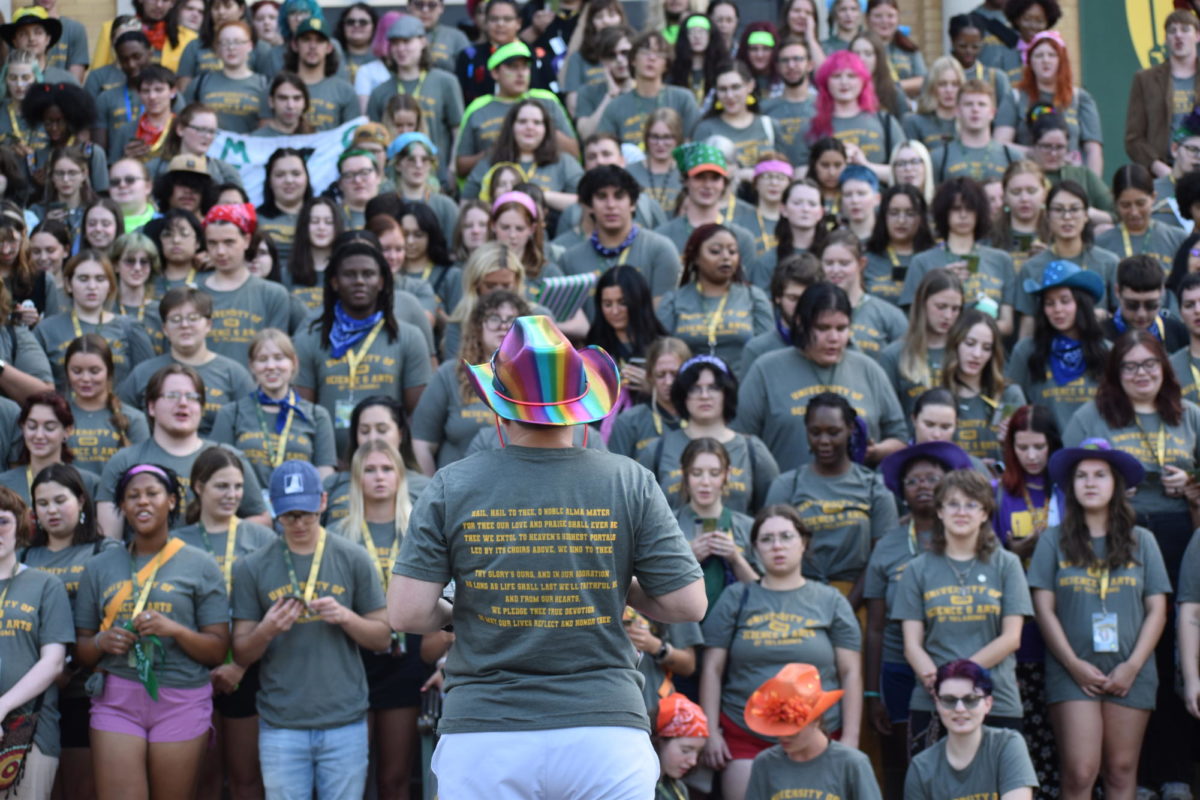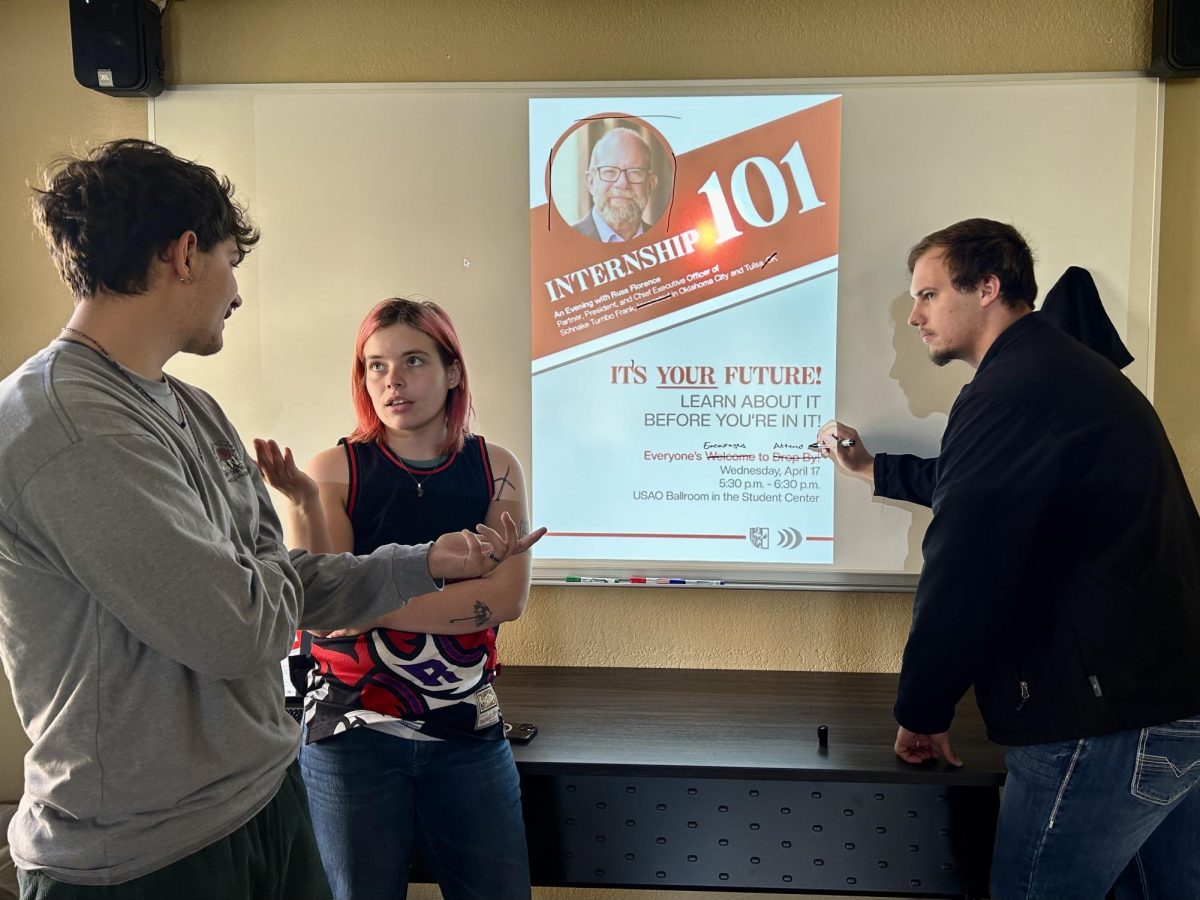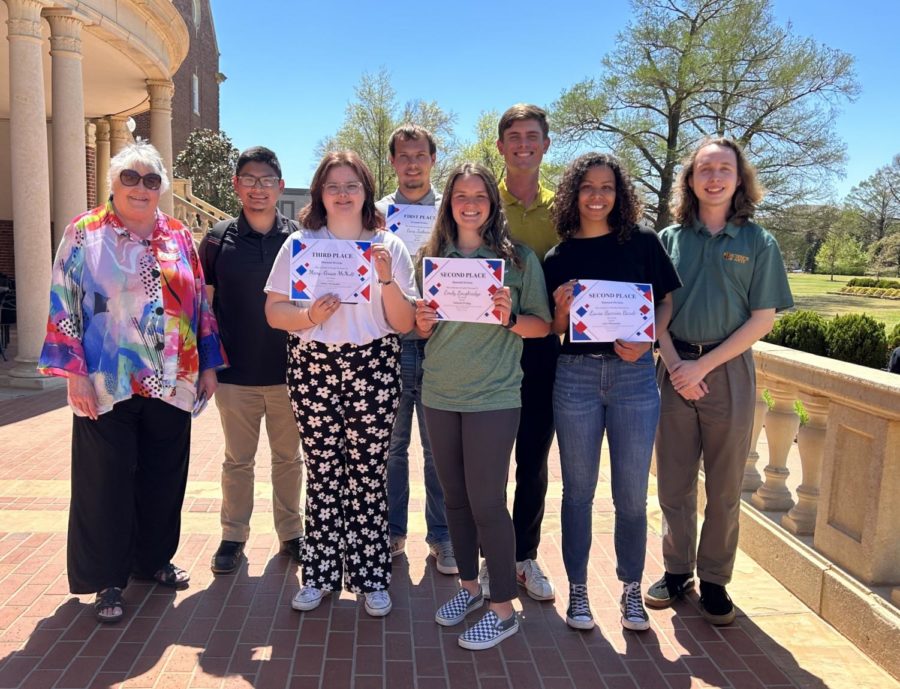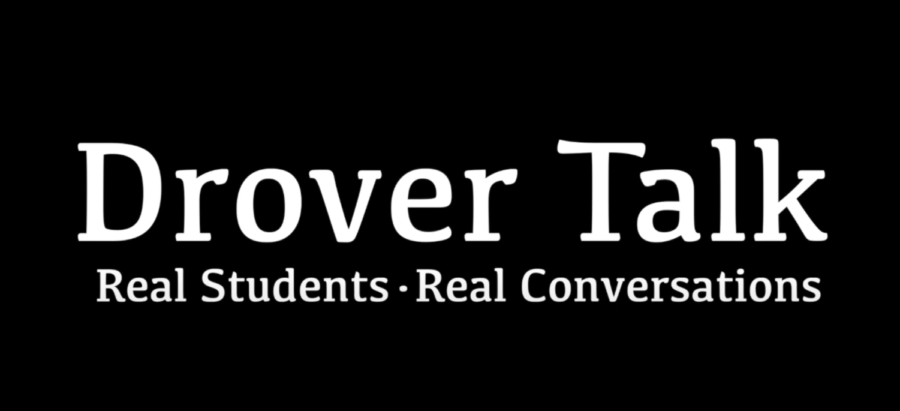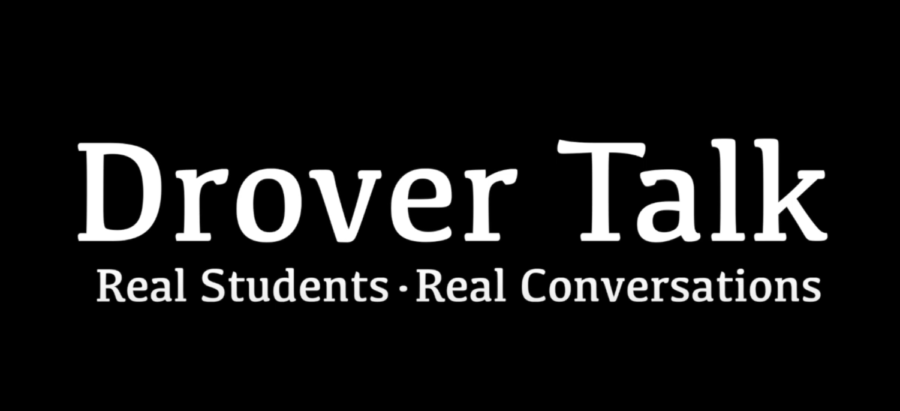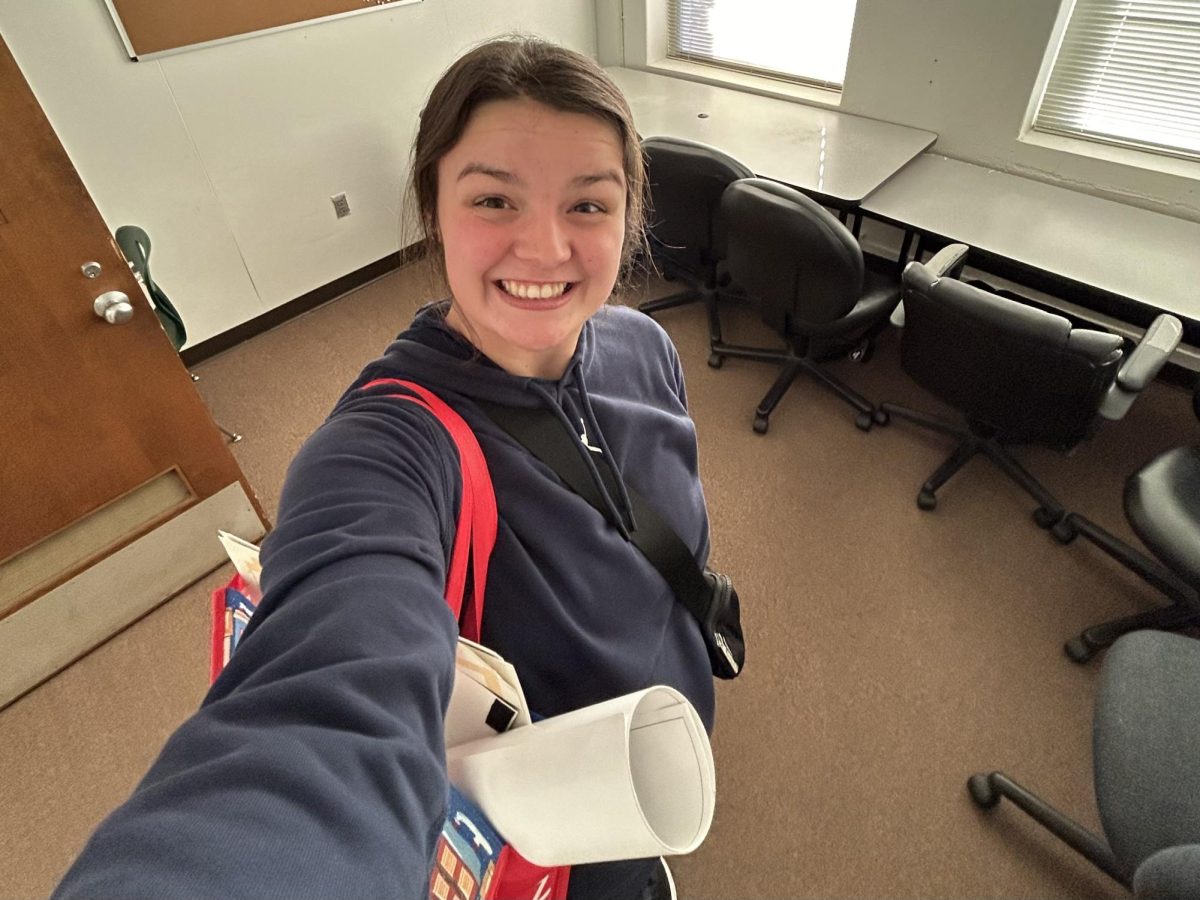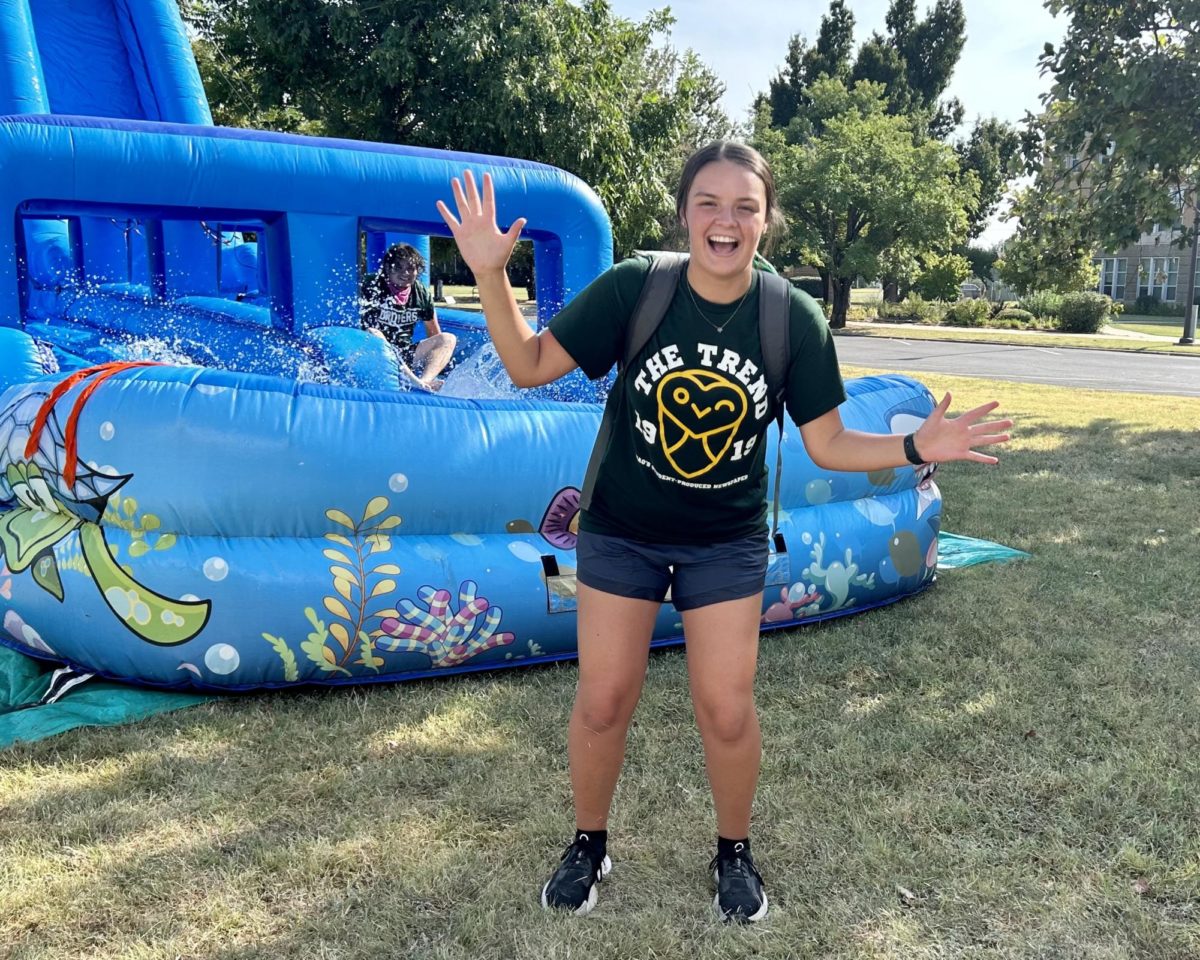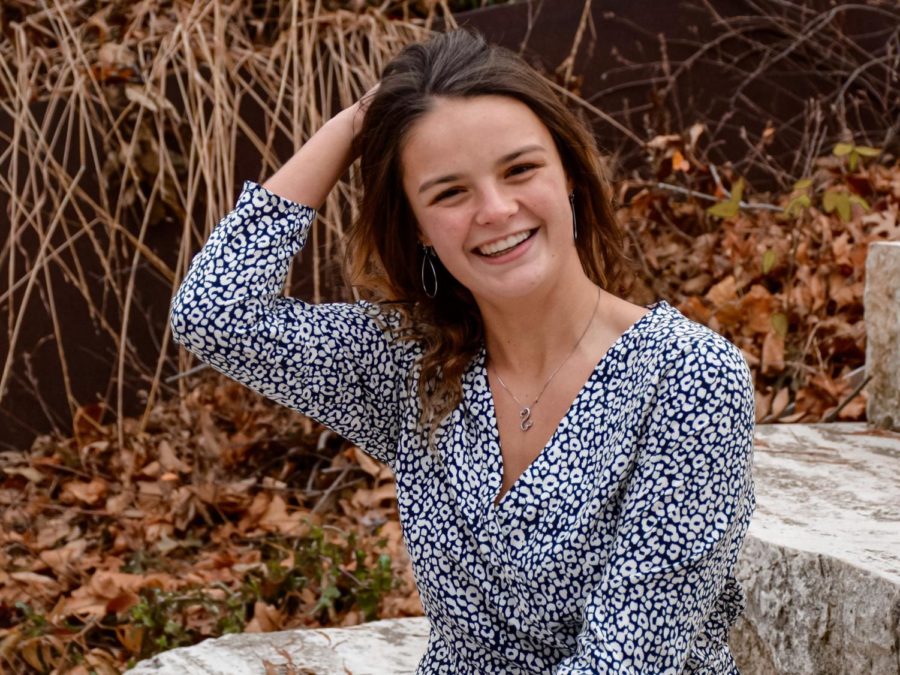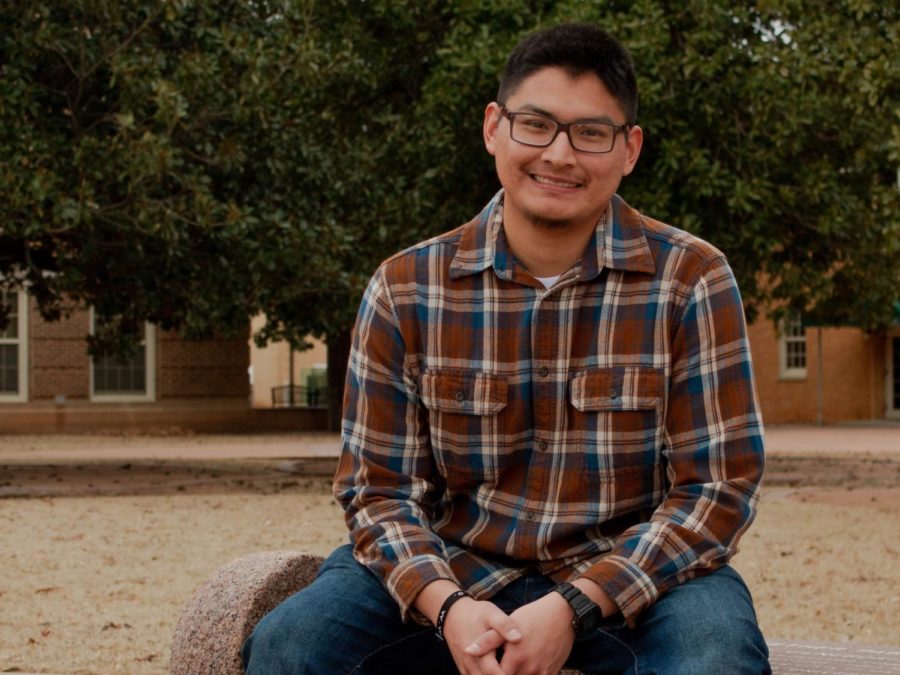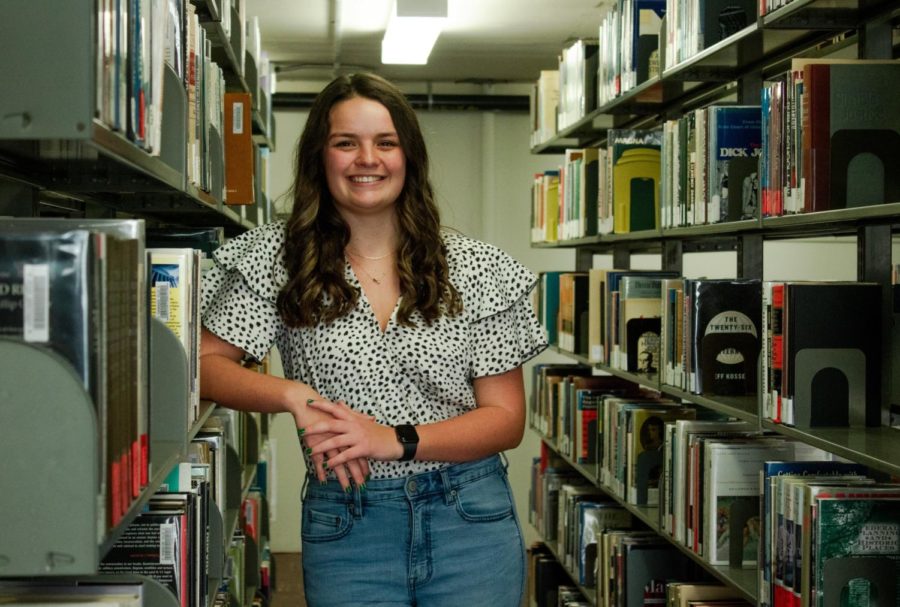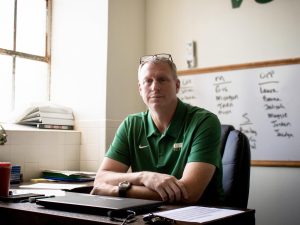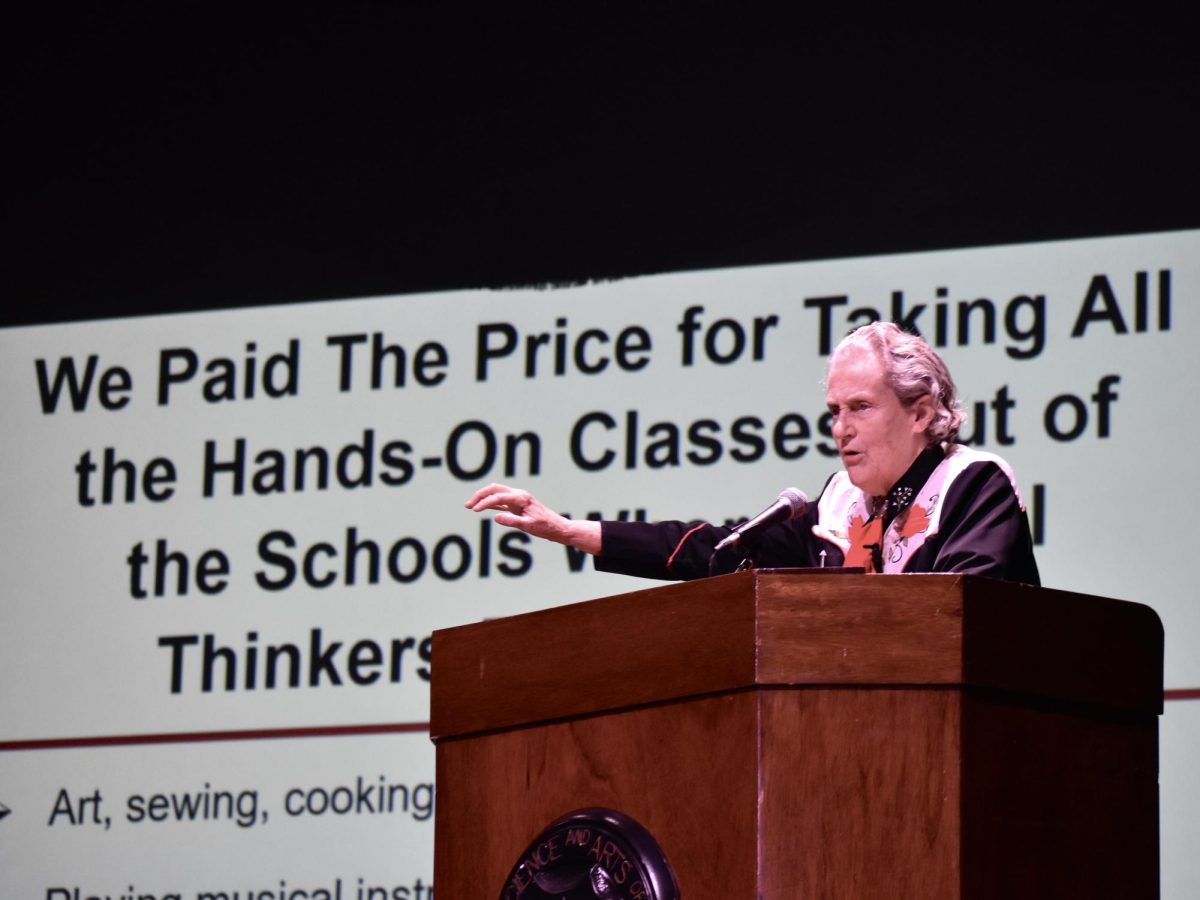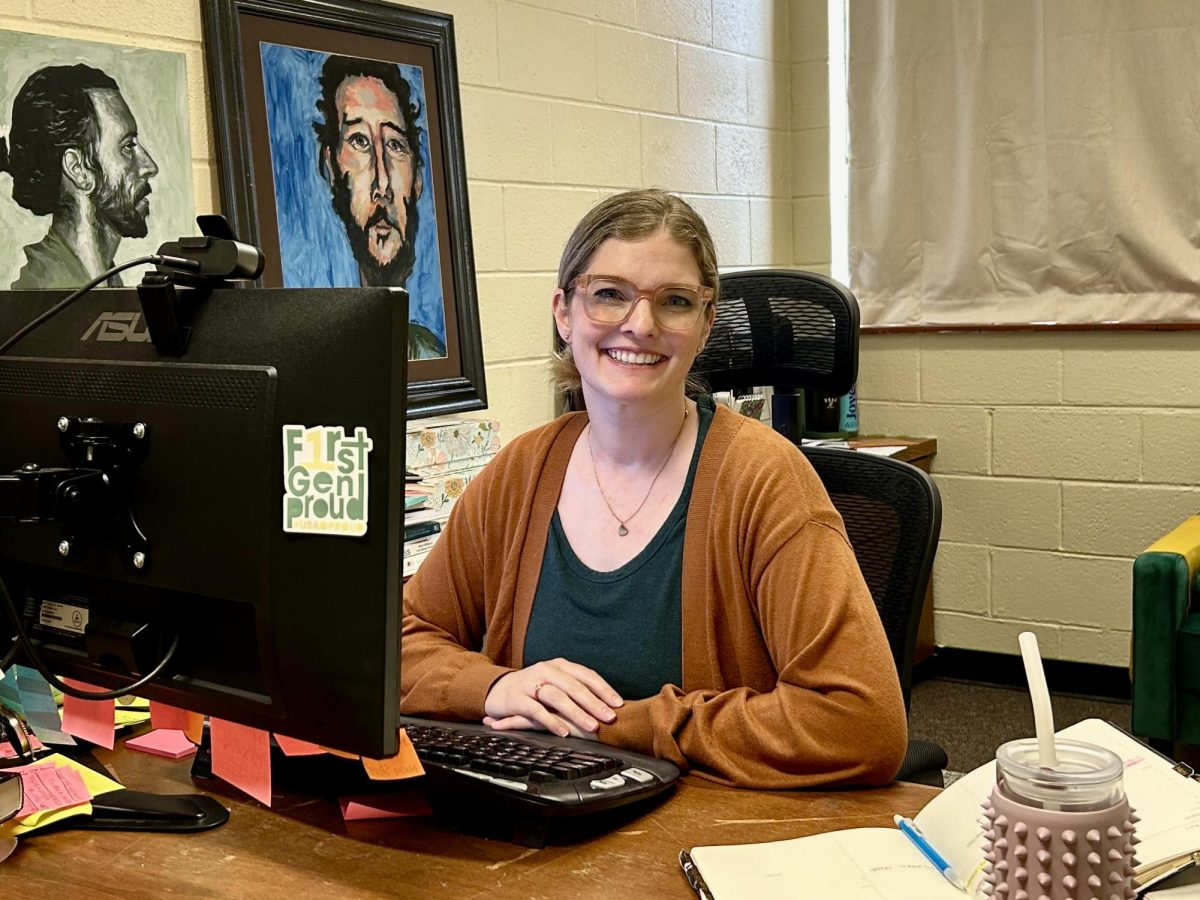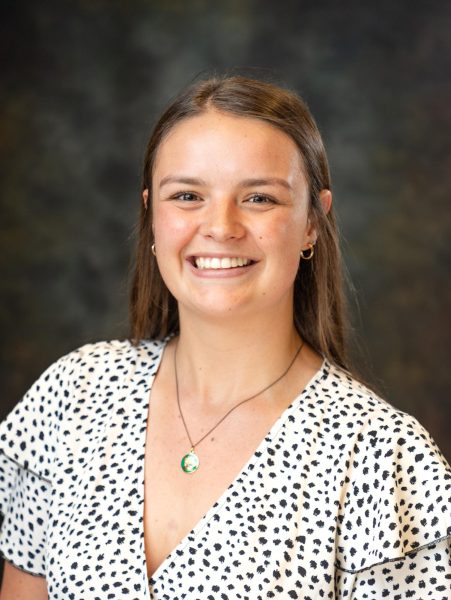The 11th Emerson-Wier Symposium brought opening speaker Tim Herbel, founder of Not Your Average Joe (NYAJ), and keynote speaker Dr. Temple Grandin, a prominent author and speaker on autism and animal behavior, to campus Friday, Feb. 23. The pair sold out both master classes and the Te Ata Auditorium with their highly anticipated discussion on neurodiversity within two weeks of the registration forms opening.
The mission of the symposium is to bring speakers to USAO who talk about or embody interdisciplinarity. Dr. Rachel Jones, symposium committee chair and dean of the school of science and physical education, said that Dr. Grandin and Herbel were perfect examples of people who embody interdisciplinarity in their work. It is estimated that 800 to 1,000 people visited USAO’s campus to listen to Dr. Grandin and Herbel.
“Temple Grandin is perfect for that because not only is a scientist working in animal welfare and agriculture, but she is a staunch advocate for autism and people on the neurodiverse spectrum. Tim Herbel, he is again a staunch advocate for the neurodiverse, but he is a business man trying to build a business and a non-profit charity,” Dr. Jones said.
The event began with Herbel’s master class titled “The Journey to Building a Successful Non-Profit and Business in Oklahoma.” In the 40-minute session, he gave an in-depth view of NYAJ, a chain of coffee shops dedicated to reducing the unemployment of those with intellectual, development, or physical disabilities. Herbel shared many of his employees’ stories to emphasize how working at NYAJ changed their lives and put their unique skills to use. NYAJ coined the term “accept-ional,” which means to include people of all abilities, and Herbel encouraged the audience to embrace the term in their everyday life.
“We just felt like we couldn’t quit working because the mission is too big. I had to make good on that promise to Braxton, and you have to make good on that promise to advocate for your loved one. The reason that you want to be here is because people of all abilities deserve to be at the table, right? They all deserve to be at the table, we all deserve to be at the table. We’re going to learn more and earn more when we’re doing it together,” Herbel said.
In the second master class, Dr. Grandin discussed “Animal Welfare in Agriculture” in her 45-minute session. She dove into being a good observer and how attention to detail can create calmer spaces for animals, because it takes 20-30 minutes for an animal to calm down after being frightened. Dr. Grandin passionately informed the audience how to properly care for animals, as she explained their basic emotions and how impactful first experiences can be. She wrapped up her session with a few examples of bad handling practices and repeatedly telling the audience that we cannot let these bad practices become the normal.
At 6 p.m., Herbel began the symposium with his opening speech. He conducted a pour-over demonstration with coffee and related it back to neurodiverse individuals. He stated that with the proper care, nurturing, adaption, and opportunity neurodivergent individuals might find success at home and in the workplace. Herbel shared a February 2024 statistic from the Bureau of Labor and Statics that said 77.5% of individuals with intellectual, development, or physical disabilities are either underemployed or unemployed after high school compared to the 4% of neurotypical individuals who are unemployed.
Later, Herbel showed a chart from the U.S. Chamber of Commerce of the labor force shortage by industry for January 2024. The chart showed a range of 20% to 50% worker shortage for certain industries. He stated that there is a pool of workers that are currently unemployed – individuals with special needs – and that they could fill the shortage in these industries if given the chance.
After Herbel stepped off the stage, Dr. Karen Karner, professor of speech language pathology, eloquently introduced Dr. Grandin. She began by introducing three types of thinkers – verbal, visual, and math. All of these minds think differently, but according to Dr. Grandin, they all have their purpose. She went slide by slide to show unique careers each thinker would flourish in while providing reasons why they’d see success in the industry. She also touched on the areas the different thinkers struggle in.
“She (Dr. Grandin) is definitely someone who educators – whether they’re special ed or not – look up to because of how she has also helped us understand that not all students, whether they’re neurodiverse or neurotypical, learn differently. Some people are visual learners, some people do better with verbal or reading. So, she hits on a lot of topics and a lot of ways of life that speak to home at USAO,” Dr. Jones said.
Exposing children to different experiences is crucial according to Dr. Grandin, as she explains that she was taught from a young age how to safely use tools. Another example is to give talented math children harder math to further challenge them. Dr. Grandin continuously emphasized the importance of hands-on classes in education.
“Object visualizers, like me, cannot do higher math. I failed the SAT in math. I still can’t do higher math, and that’s true of a lot of the shop people I worked with. I’m very concerned that my kind of mind is being screened out,” Dr. Grandin said. “One of the biggest problems I’m seeing right now is smart autistic kids, they’re not learning work skills. They’re not learning shopping; They’re not learning basic things. Things I was doing at a really young age. I’m seeing them get too overprotected, parents do all the talking for them, and they’re not learning work skills.”
After Dr. Grandin’s speech both speakers came out on the stage for a moderated Q&A session. Emily Loughridge, a senior communication major, was tasked with researching both speakers, forming questions, and then posing her questions, as well as the audience’s, to Dr. Grandin and Herbel. Afterwards, Dr. Grandin went to a book signing area which saw a line wrap around the auditorium. Dr. Grandin had many of her books for sale before the event, and by the time the event began she had sold every single one.
The next symposium will be in Spring 2025 with the Giles Symposium, which discusses public service. Dr. Jones said the committee is in the process of selecting speakers for the upcoming symposium which will discuss social services and social welfare programs. The Emerson-Wier Symposium will return in Spring 2026.
Emily Loughridge is a third-year communication major at the University of Science and Arts of Oklahoma.


